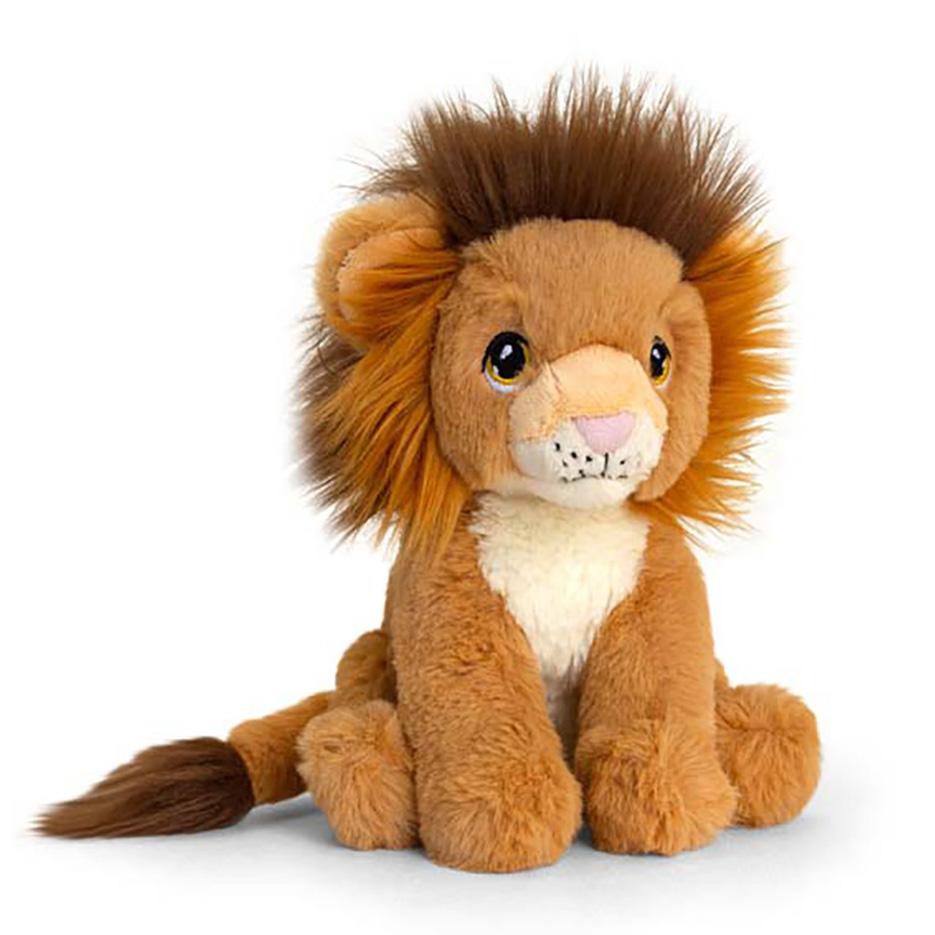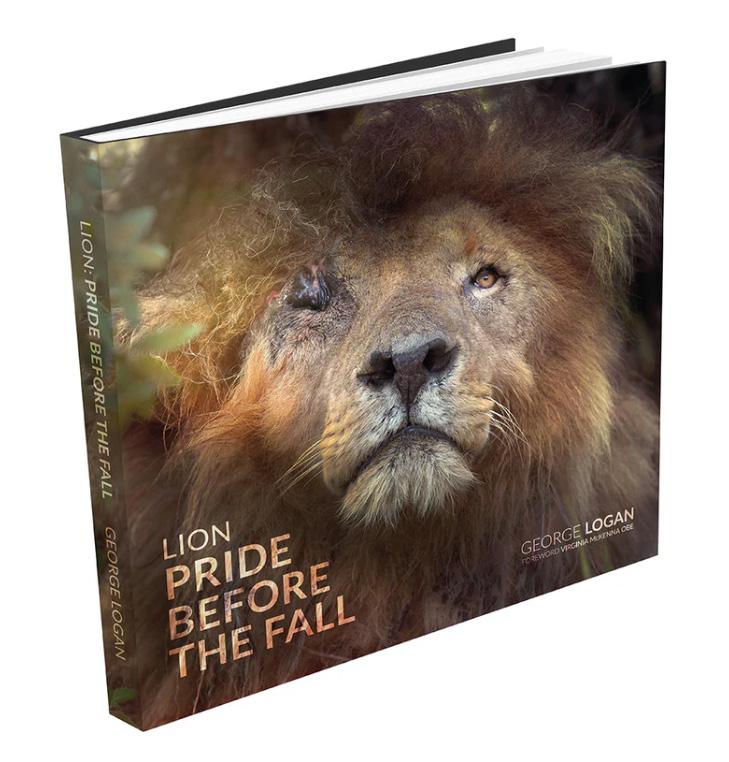










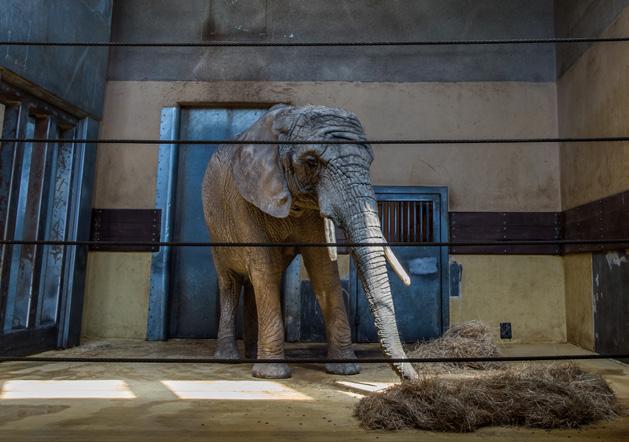





FABULOUS AT 40 – FOUR DECADES OF ACTION







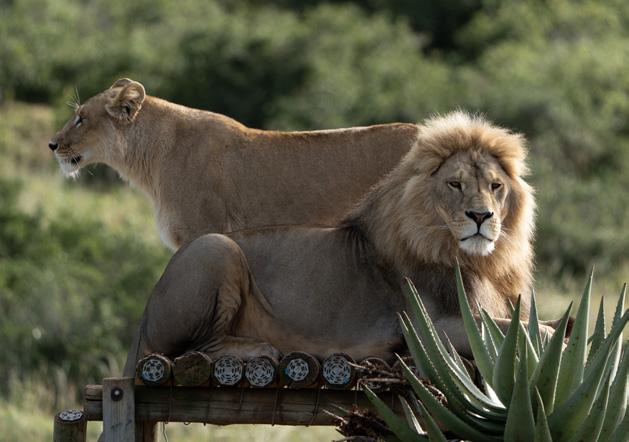


GIVING A VOICE TO WILD ANIMALS IN NEED





IT’S THANKS TO YOU – WE’RE ALL BORN FREE!



















FABULOUS AT 40 – FOUR DECADES OF ACTION










GIVING A VOICE TO WILD ANIMALS IN NEED





IT’S THANKS TO YOU – WE’RE ALL BORN FREE!

What did we hope for, 40 years ago? Well, of course, our dreams were, perhaps, a bit naïve… we thought that zoos – places where wild animals were incarcerated for their entire, unnatural lives, for little more than human entertainment – would soon be consigned to the history books. Sadly, lots of them are still here but, after four decades of relentless campaigning, attitudes really are changing.
And we had other dreams too:
• No more performing captive dolphins in the UK – check!
• No more wild animals in circuses in the UK – check!
• (Almost) no more domestic ivory trade in the UK – check!
• (Almost) no more polar bears in British zoos – check!
• Requiring all zoos in the EU to be licensed – check!
It’s not a bad tally. But, big challenges remain:
• The rise of the ‘Selfish Selfie’ souvenir photos with captive wild animals (social media didn’t even exist when Born Free started)
• There are still 11 zoos with elephants across the UK (although that might be about to change for the better)
• The gross exploitation of wild animals (and plants) by the illegal wildlife trade still afflicts many parts of the world
• The import of hunting trophies into the UK, advocated for by those who haven’t the imagination to think beyond the barrel of the gun, still goes on (although that may change soon too)
• The biodiversity crisis, linked to the climate crisis, still suffers from the short-termism of political agendas that think more about the next election than the survival of life on earth – including ours.
Born Free is planning for the next 40 years. This edition of Wild Life sets out some of our thoughts and ambitions.
But our greatest achievement is – YOU. The very fact you’re reading this magazine, that you support Born Free and have decided –amongst the many competing pressures of life – to be part of our family and fight, with us, for change, is the greatest gift of all.
So, thank you, thank you. And now – read on!
 Will Travers OBE Executive President will@bornfree.org.uk @willtravers
Will Travers OBE Executive President will@bornfree.org.uk @willtravers
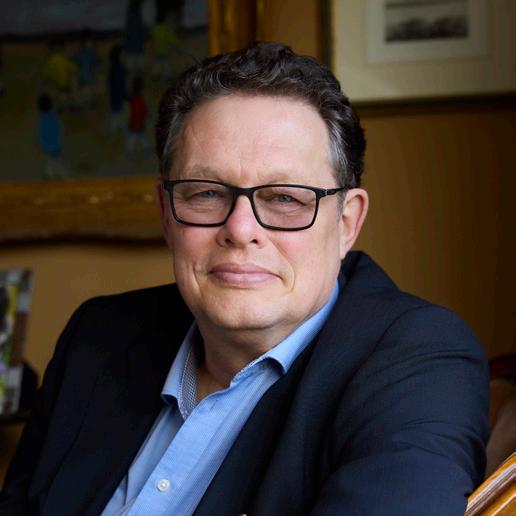

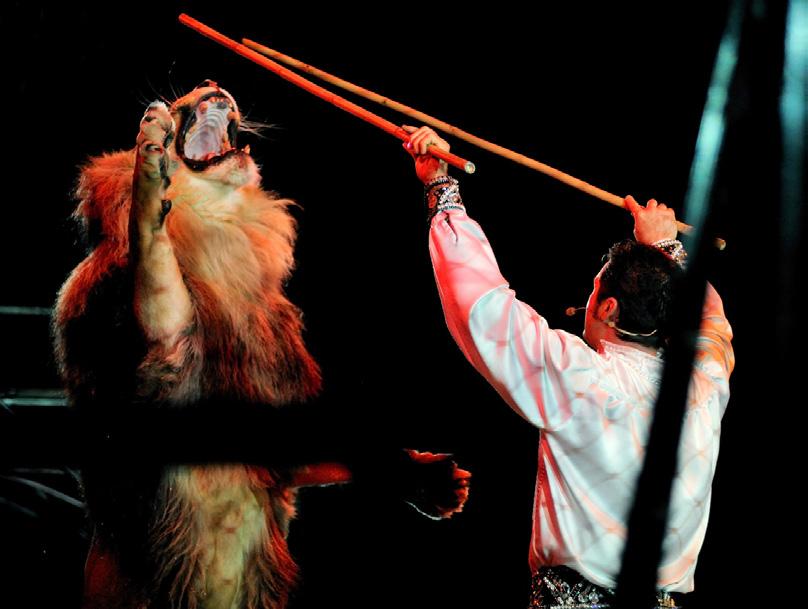
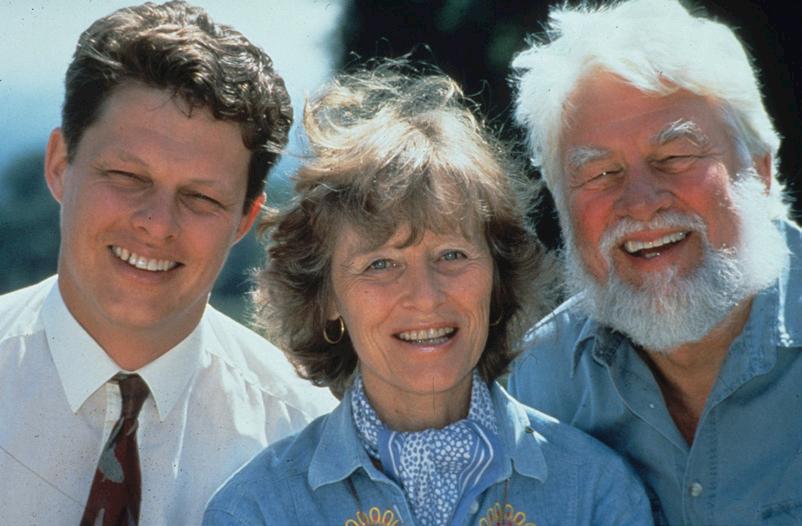
COVER STORY
40 years of action – thanks to you!
In 1984, our charity was founded by Dame Virginia McKenna and Bill Travers MBE, with their eldest son Will, to expose and end the suffering of wild animals in captivity. Over the years, we’ve evolved into a global force for wildlife, devoted to care and conservation, challenging those who want to hunt, kill and exploit.
Everything we do for wild animals in need is made possible by your generosity. So, a huge and heartfelt ‘thank you’ for sharing our dream for a better future. To donate visit bornfree.org.uk/donate
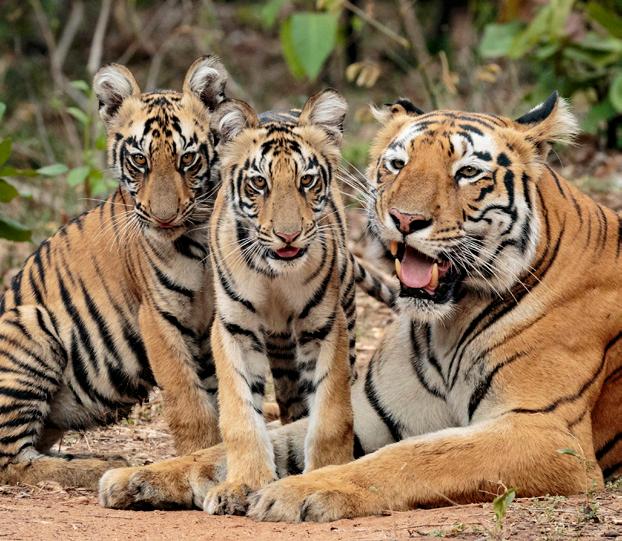
Have you heard the latest wild news?
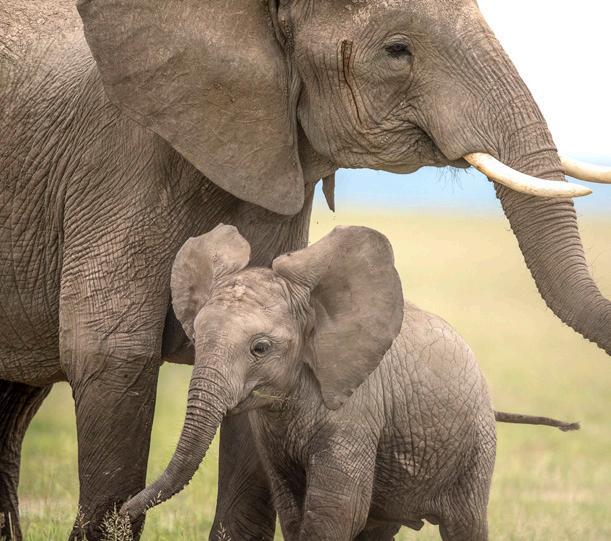
Fabulous at 40: four decades of action, four more of hope

Why we love Dame Joanna Lumley: meet our Founder Patron
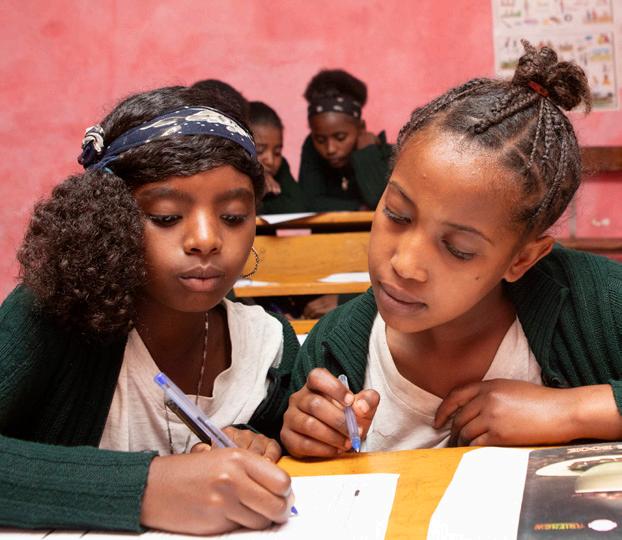
40 years of education and awareness

Dame Virginia reveals what lies at the heart of our charity
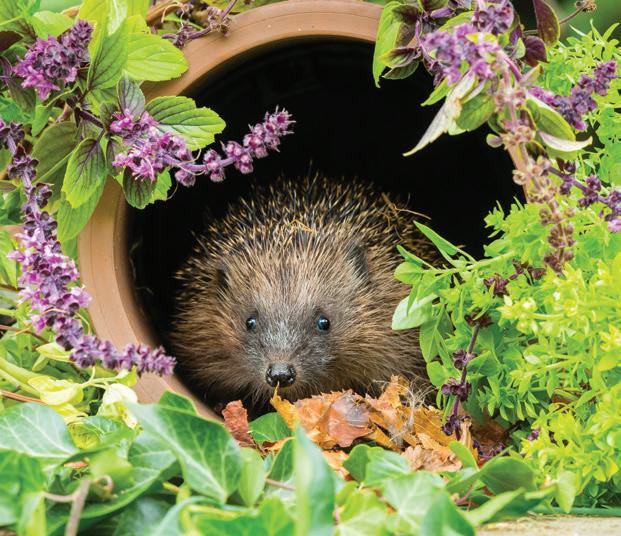
Your free gift: an eye-catching, how to help wildlife wallchart
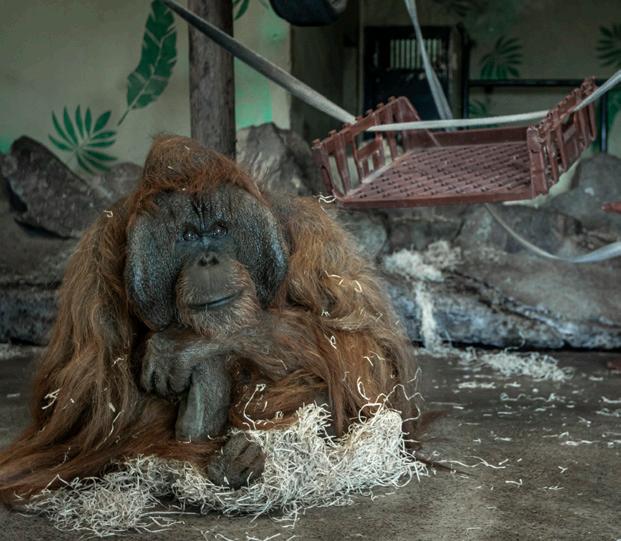
40 years of fighting captive exploitation
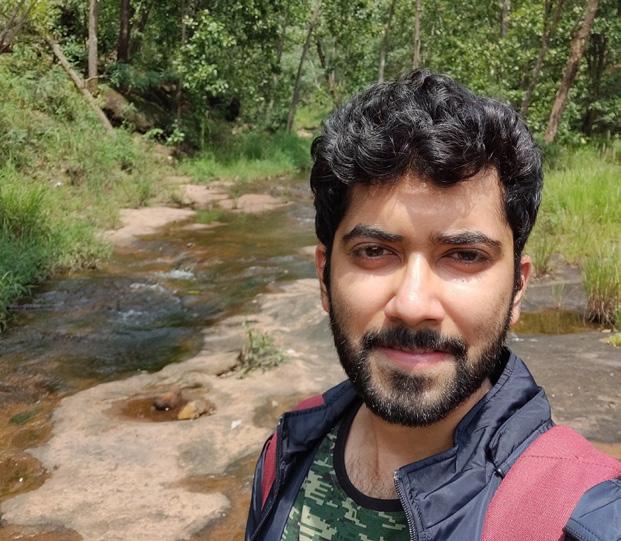
One more thing: a day in the life of a tiger hero
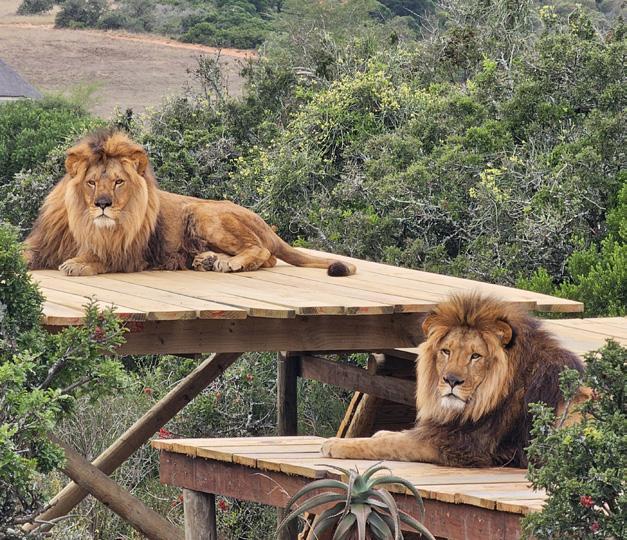
At last! Young lion brothers, Tsar and Jamil, come home

Our map of the world: where we work, which animals we help
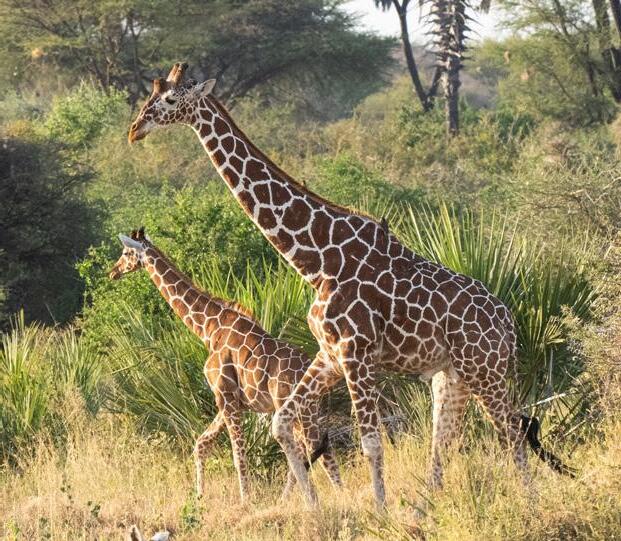
40 years of compassionate conservation
Born Free Foundation, 2nd Floor, Frazer House, 14 Carfax, Horsham, West Sussex, RH12 1ER, UK bornfree.org.uk | info@bornfree.org.uk +44 (0)1403 240170 bornfreefoundation bornfreefdn bornfreefoundation bornfreefoundation bornfreefoundation
The views expressed in Wild Life are not necessarily those of Born Free. If you have any comments or issues you would like to raise, please write to the Managing Editor.
Will Travers - Managing Editor: will@bornfree.org.uk
Celia Nicholls - Editor: celia@bornfree.org.uk, Claire Stanford - Graphics & Brand Manger: claire@bornfree.org.uk
Registered Charity No: 1070906

Sharing inspiring stories from the past 40 years and raising vital funds for the future of wildlife, Born Free held our Footsteps to Freedom Ball at The Royal Lancaster, London, in March. The star-studded event was hosted by Amanda Holden, who was joined on stage by our wonderful Patrons Dan Richardson, James Lewis, Sally Gunnell and Founder Patron Dame Joanna Lumley.

With the help of your donations and a lot of organising, two young lion brothers rescued from Ukraine, have arrived at our big cat sanctuary at Shamwari, South Africa. Here, amidst the tranquil beauty of their forever home, Tsar and Jamil can recover from their traumatic past – full story page 10.
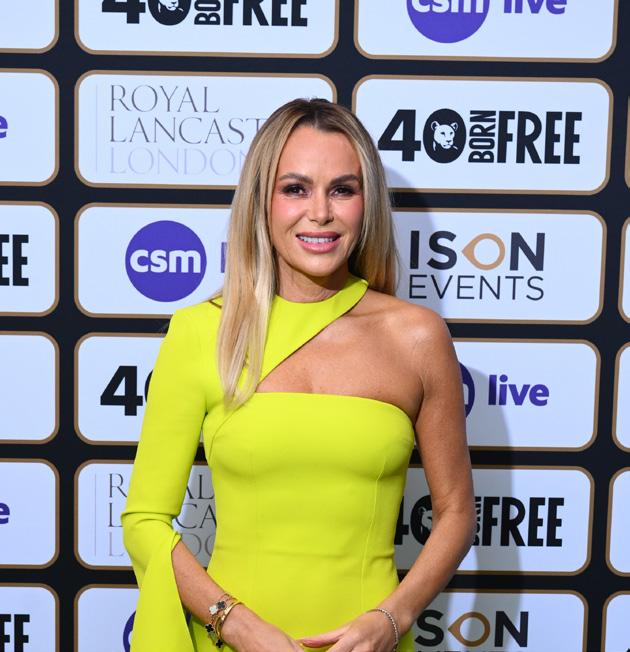
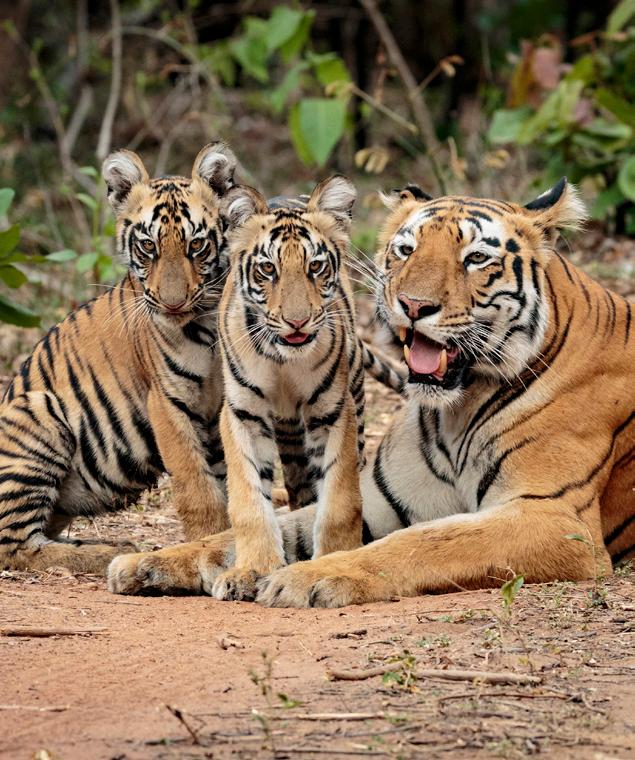
This April, in under a week, you raised over £47,000 to keep tigers safe in India’s vast forests. Thanks to Green Match Fund, your donations were doubled and had twice the impact. Talking of tigers, remember Sandro, whom you helped rehome in 2021? Rescued from a notorious zoo in Spain, closed after a long campaign, our new update shows him blissfully enjoying life at his sanctuary in Italy –visit bornfree.org.uk/news
“Kerry Ellis’ moving performance of ‘Born Free’ was made extra special because we were also joined by Don Black, who wrote the lyrics,” said our Events Manager, Joanne Bartholomew. “Then, after we toasted Dame Virginia McKenna, her inspiring speech brought everyone to tears as she received a standing ovation.” Our sincere thanks to everyone who attended – the fabulous evening raised £200,000.

Across the world, more than 3,600 dolphins and whales are exploited in captivity but, Born Free’s new Tank Free campaign helps you take action. “We don’t need to tell you these intelligent, sentient beings don’t belong in concrete tanks or shallow sea pens,” said Sarah Jefferson, from our Captivity team. “But, we do need you to spread the word with family and friends.” Find out more: bornfree.org.uk/ dolphinaria
From a dark barren cell at an illegal breeding facility in Poland, to the South African sunshine, Alda and her daughter Ginny are safe at our sanctuary at last (page 7). “It was a big team effort to get them there,” explains our Head of Rescue & Care Maggie Balaskas, “but now, they are free from exploitation.” Our mission, to fight those who exploit and sell wild animals for profit, is as strong as ever.
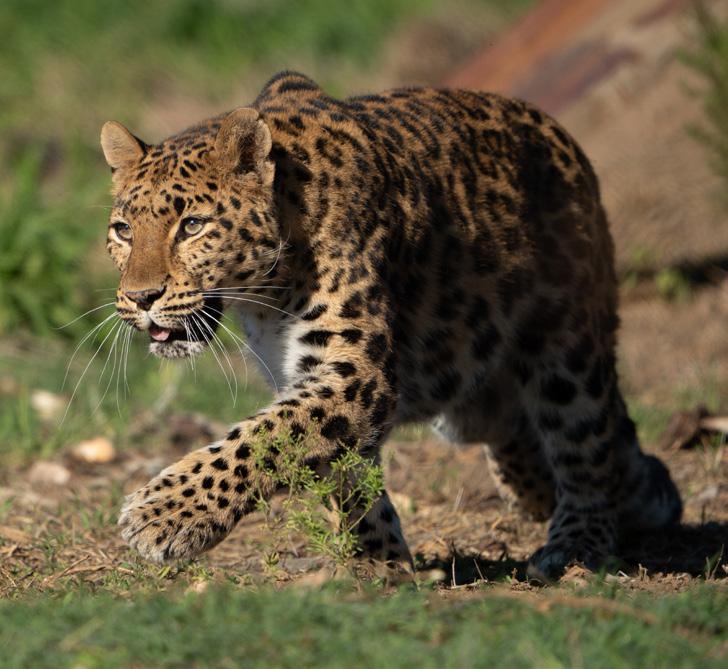
Congrats to our dynamic London Marathon squad, for completing the world’s most famous road race and raising more than £30,000 for wildlife, this April. Inspired? “From fun runs to ultras, we’d love you to ‘Run Wild’ with Born Free,” said Carina Hibbitt from our Fundraising team. “Take a charity challenge, or hold a fundraiser using our new online pack – I’m here to help!” To get involved visit bornfree.org.uk/fundraising

Our heart-wrenching animation, Enough is Enough, has triumphed at the prestigious Smiley Charity Film Awards, in London’s Leicester Square. Voiced by our Founder Patron, Dame Joanna Lumley, the short film highlights the plight of elephants in zoos and calls for an Elephant-Free UK. Like to help elephants win? Sign our petition at bornfree.org.uk/elephant-free-uk
Around 1,400 rare reticulated giraffes live in Meru Conservation Area, in Kenya and, one by one, we’re getting to know them all!
“Since 2021, our team has identified nearly 400 by their unique coat patterns,” explains our Head of Conservation Dr Nikki Tagg. “We add each giraffe to our database to inform our work but, that’s just for starters. In the past year, we also removed over 500 deadly snares to help keep this elegant species and their long limbs safe.”
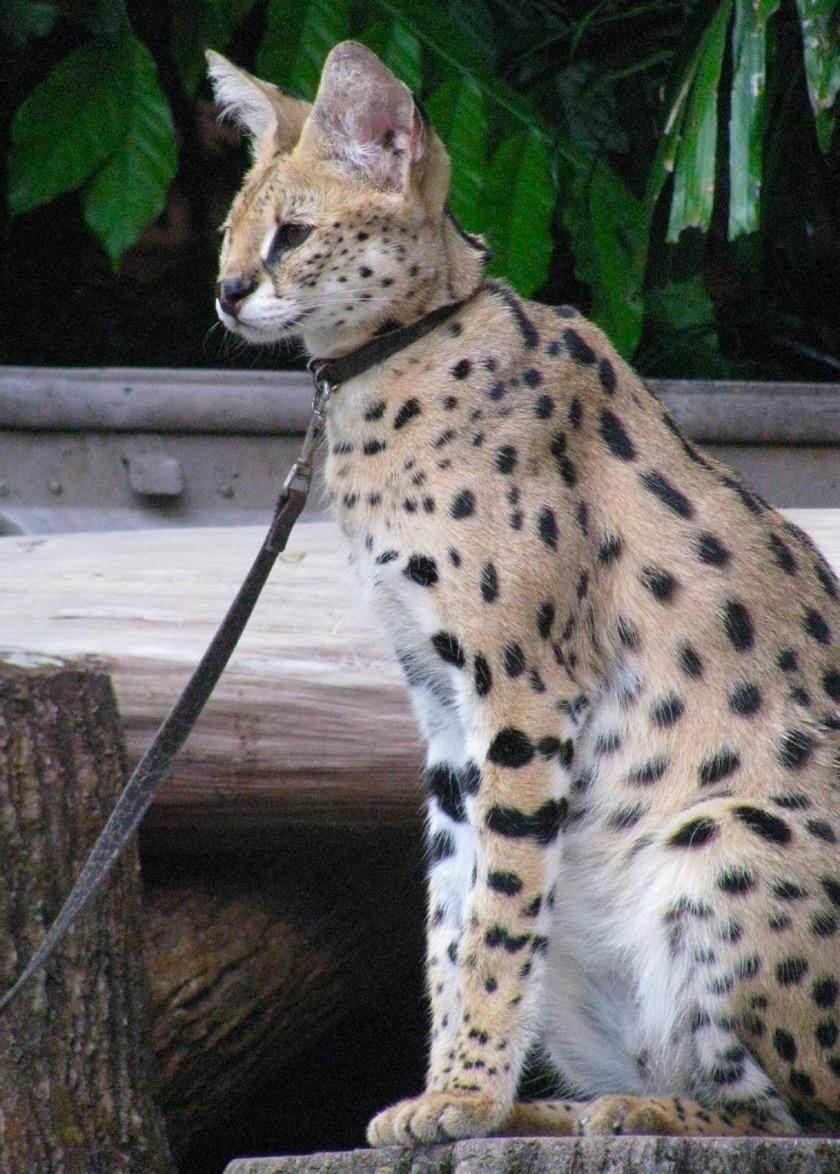
“You might be surprised,” said Chris Lewis from our Captivity team.
“From servals, lions and tigers, to cobras and crocodiles, our newly revised data reveals a shocking number of dangerous wild animals kept legally as ‘pets’, in homes across Britain. We call for urgent action to tighten legislation.” Where are these animals? View our map: bornfree.org.uk/dwamap



What do gorillas, elephants, albatrosses and marine turtles have in common? They all migrate and they’re all under threat. But, protecting migratory species across borders requires plenty of collaboration. Which is why, earlier this year, we joined delegates from 133 governments at a key global wildlife meeting in Uzbekistan to advocate for their protection. See bornfree.org.uk/news for a full report.


In 2022, you helped give a fresh start and wonderful new life to four male servals, rescued from Belgium’s illegal pet trade. It’s great to see their wild instincts reignite at Panthera Africa Big Cat Sanctuary, in South Africa –enjoy a video at bit.ly/servals-update. Designed to hunt, with sharp teeth and hooked claws, servals never make good pets. Our work continues to end the cruel trade (page 5).
We love elephants at Born Free, and it’s great to know you feel the same way! Mammoth thanks for donating to last year’s Hope for Elephants appeal. With your help we raised nearly £60,000 to protect these remarkable family animals, fight the barbaric ivory trade, and fund practical solutions to help people and elephants peacefully coexist.
Since 2010, our work in Amboseli, Kenya, to reinforce more than 400 traditional ‘bomas’ (livestock enclosures) has been a win-win. We empower people to protect livestock AND reduce retaliatory attacks on lions and other predators! Now we’ve launched this tried and tested project in our Meru heartland – where the Born Free story began. Find out more page 30.
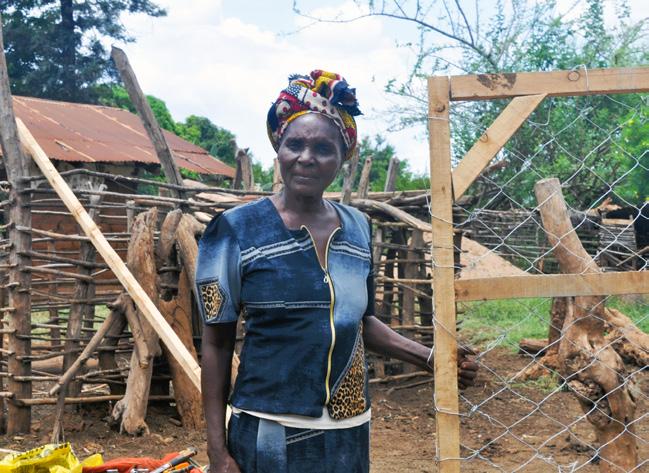
We look forward to seeing you soon!
Pollyanna Pickering exhibition 22nd - 30th June 2024, The Gallery, Matlock DE4 2JJ Celebrating Born Free’s 40th, a collection of previously unseen work by acclaimed artist, the late Pollyanna Pickering, who was a longstanding Patron.
Walk on the Wild Side 1st - 31st August 2024, anywhere in the world!
Could you walk or run 23,000 steps in a day, one pace for each of the 23,000 lions left in the wild?
Drawn from the Heart 1st – 5th October 2024, Mall Galleries, London SW1Y 5AS
Major new exhibition and exclusive private view of 165 artworks by Gary Hodges –the UK’s best-selling, most collectable, pencil artist –and our dear friend.
Footsteps to Freedom Ball 20th March 2025, The Royal Lancaster, London W2 2TY
Join Born Free, our Patrons and friends for a fabulous evening of inspirational stories, motivating projects, fine food and wine, dancing and entertainment at our black-tie gala.
Find out more at bornfree.org.uk/events

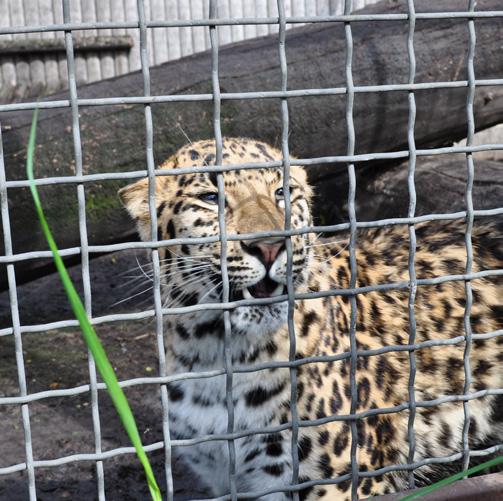
We’re over the moon to welcome two new leopards to our sanctuary in South Africa, confiscated from dire conditions at an illegal breeding facility in Poland.
Our remarkable Rescue & Care team has done it again! In May, after years of legal issues and complex paperwork, 14-year-old mother Alda and her eight-year-old daughter Ginny tentatively stepped out into the haven of their 2.5-acre bush enclosure, at our big cat sanctuary, at Shamwari Private Game Reserve.
We are so grateful to our friends at Olsen Animal Trust for funding their lifetime care. “Sadly, Ginny and Alda can never be released back into the wild,” said their Founder Sue Olsen. “However, thanks to Born Free, they are now living out their lives in their ancestral home. They will never be exploited again and will be shown the compassion and respect they deserve.”
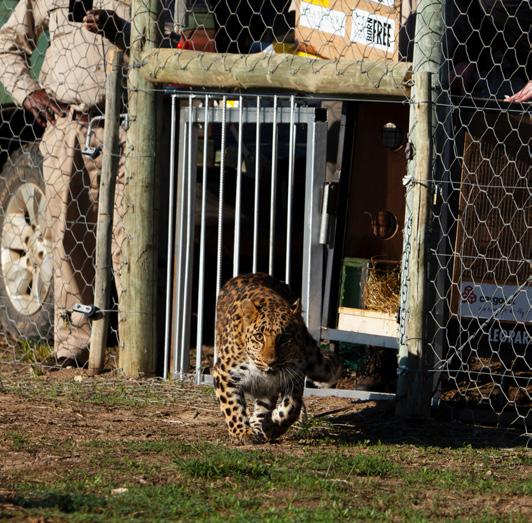
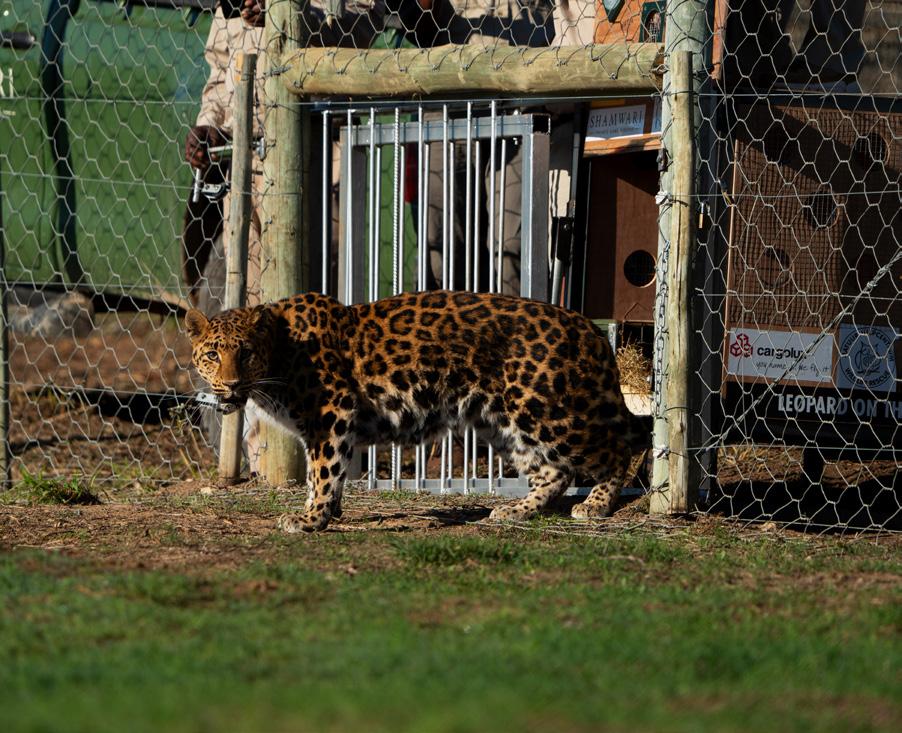
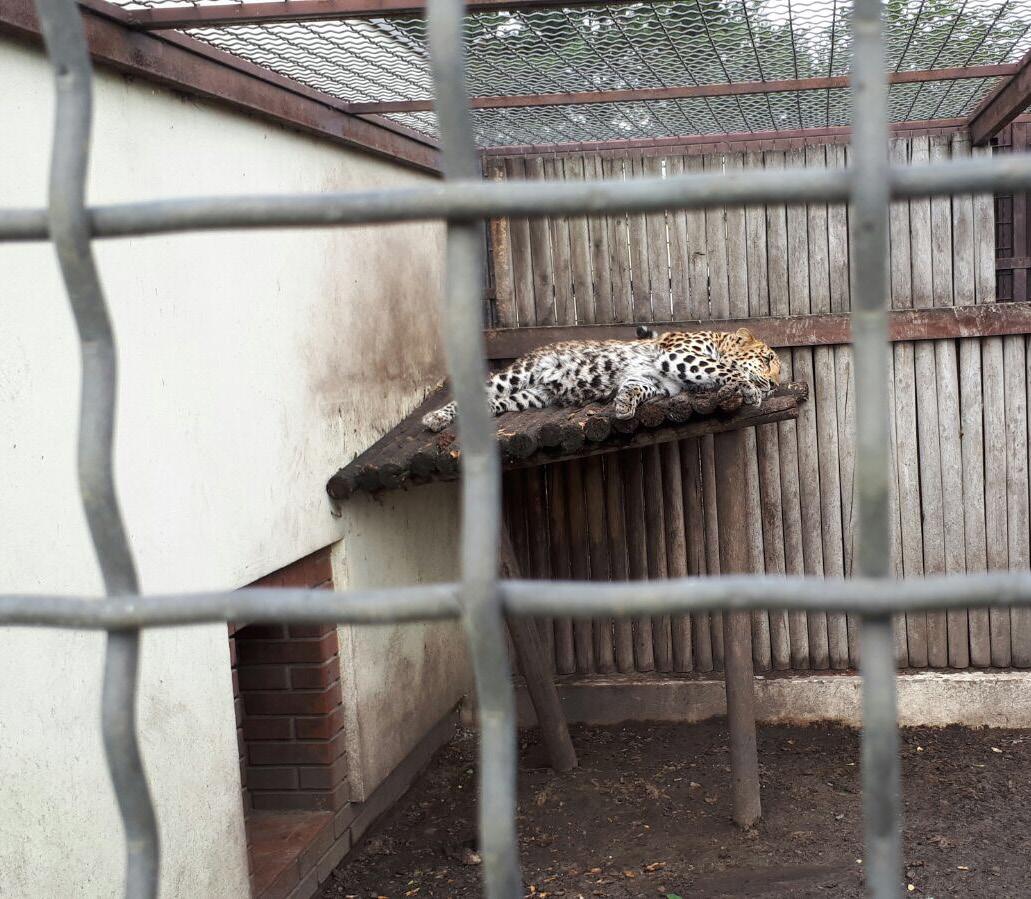
Victims of wildlife trafficking, kept in terrible conditions in Poland

Recovering with our friends at Natuurhulpcentrum, a halfway house in Belgium
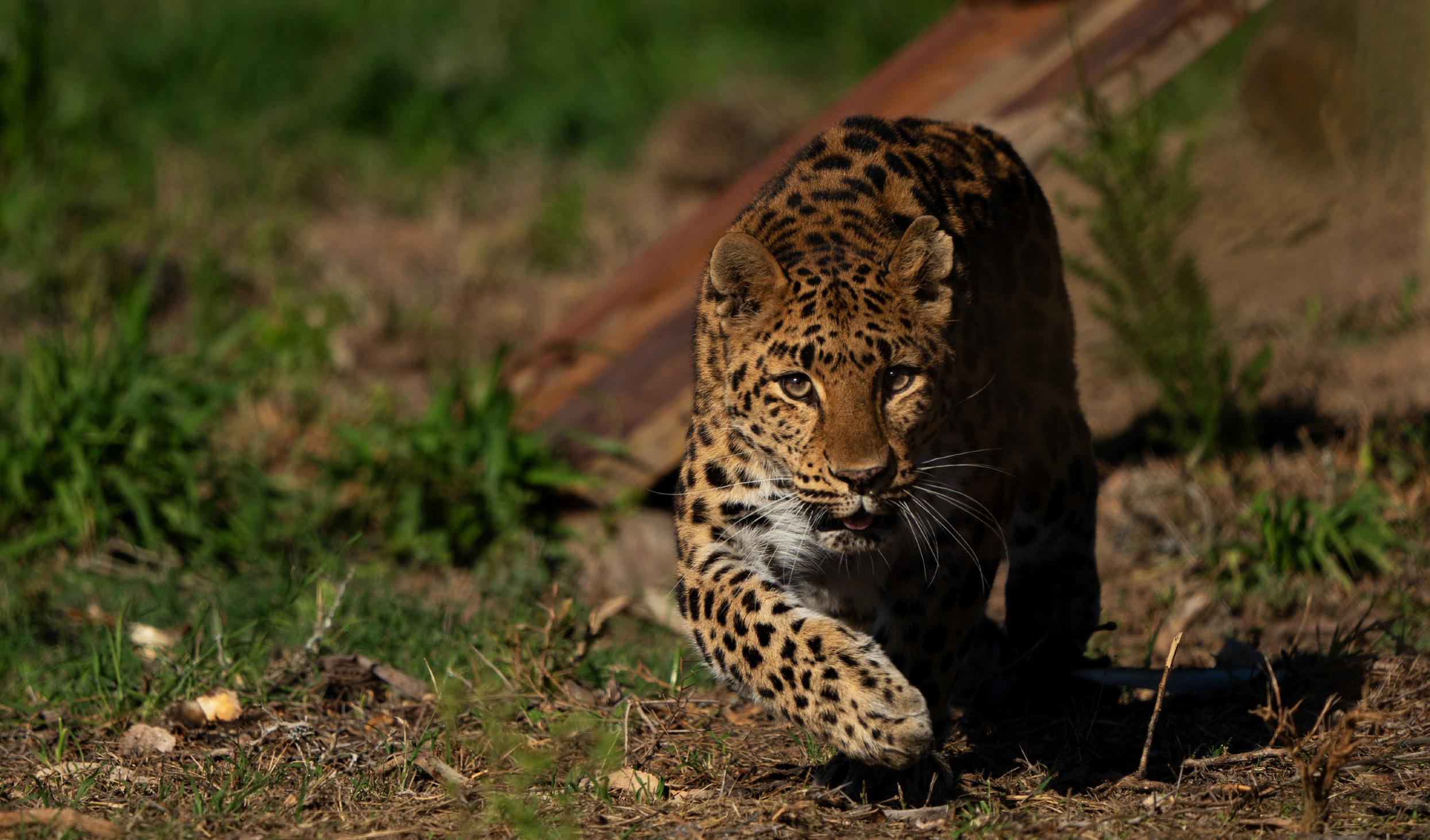
Thank you To everyone who helped rehome Alda and Ginny, not least BidAir, OlsenNatuurhulpcentrum,Cargolux, Animal Trust and Shamwari Private Game Reserve.

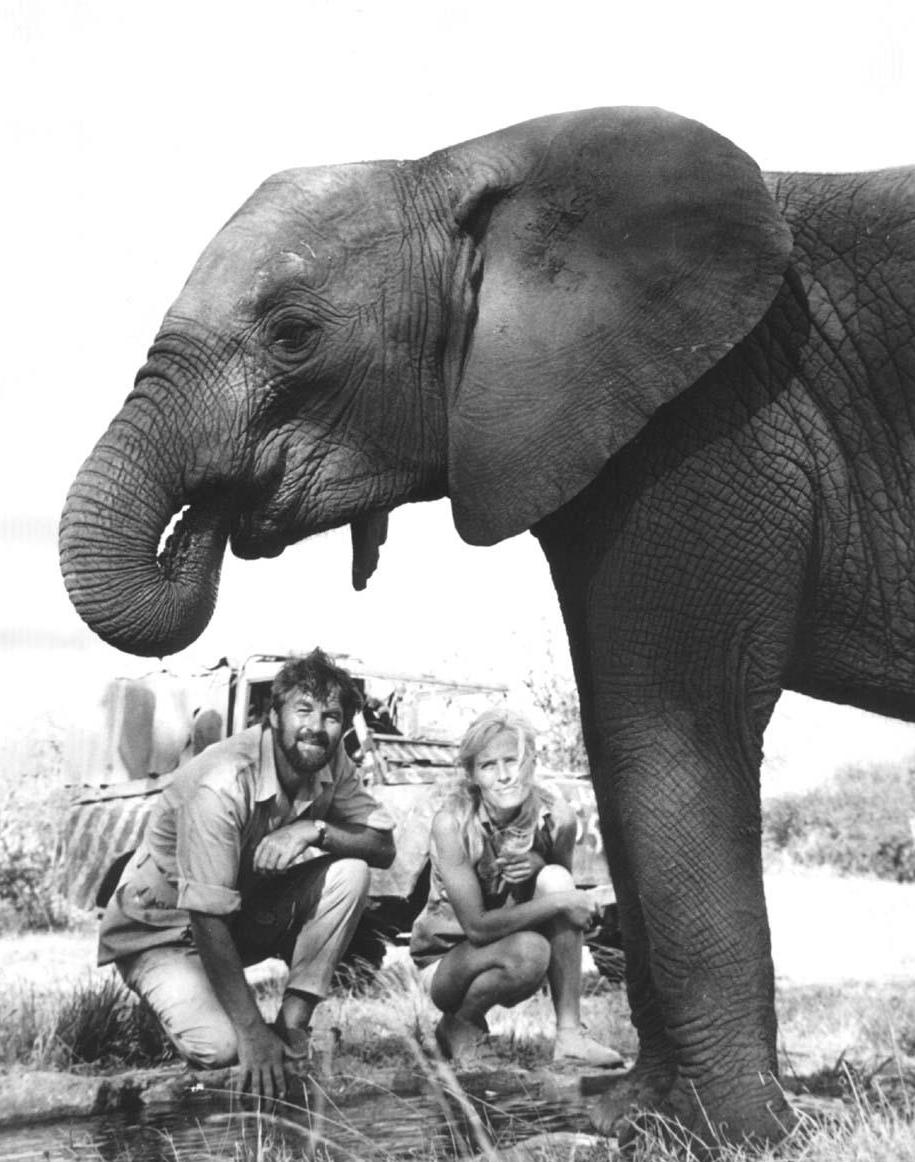
Our remarkable Co-Founder, Dame Virginia McKenna, looks back over the history of our charity, and explains why individuals have always been at our core.
Back in March, our Footsteps to Freedom Ball (page 4) was a wonderful chance to see old friends and new. Each of them, like you, caring about wild animals and the survival challenges so many of them face.
It was an opportunity to explain to the audience how our charity began, 40 years ago. But, actually, it was 60 years ago that my husband Bill and I went to Kenya with our young family – including five-year-old Will – to make the film Born Free, in 1964. Based on Joy Adamson’s best-selling true story, it told how, against the odds, she and her husband, George, successfully returned an orphaned lion cub, Elsa, to the wild.
Working every day with George Adamson – our mentor and guide –we learned so much. Most importantly we came to understand that animals are individuals, with likes and dislikes, much like ours. Little did we know that this experience was to change our lives.
Bill, and the director of Born Free, James Hill, then made another film An Elephant Called Slowly, in 1969. We found a little elephant in a trapper’s yard in Nairobi – taken from her wild family as a ‘gift’ to London Zoo. Needless to say, we fell in love with her and, when filming was over, asked if we could buy her and give her to the wonderful Daphne Sheldrick and her husband David – dedicated to returning orphaned elephants to the

wild. Our request was granted, but we were told another young elephant would be caught to take her place. Totally unacceptable. Sadly, she came to the zoo.
She never forgot us, and we never forgot her.
Learning the zoo might destroy her because she had become ‘difficult to manage’, we had to do something. We found a reserve in southern Africa which would welcome her, but the zoo refused to let her go. Finally, in 1983, they said they would send her to Whipsnade, their country zoo, where at least she would have companions of her own kind. It was a disaster. Kept standing for hours in her travelling crate she collapsed. Declaring she had lost the will to live, they ended her life.
In her memory, we started our little campaign group called Zoo Check, 40 years ago. Checking on zoos, challenging their claims, and rejecting captive exploitation is still a fundamental part of what we do today at Born Free. But, each individual animal matters deeply, which is why wild animal rescue also lies at the heart of our work. Through helping each one, we draw attention to the plight of hundreds of others. I think back to our very first lion rescue, Raffi and Anthea in 1995. It took five years to get them out of that wretched rooftop cage in Tenerife and to our sanctuary in South Africa.

Fast forward to today and I am delighted Tsar and Jamil, the 58th and 59th lions to be rehomed by Born Free, have arrived at their ancestral homeland (page 10). Safely at their forever home, they will experience as wild a life as possible, free from human exploitation and abuse, lavished with expert, loving care.
These rescues give me and everyone at Born Free the strength to continue.
But I never forget the people who helped make it possible. You, our kind and generous supporters, to whom we owe so much. The last 40 years have been quite extraordinary. I cannot say what the next 40 will bring in these challenging times, but of one thing I am sure. They will be filled with compassion and, with your help, Born Free’s voice, and all that it stands for, will be heard loud and clear.
Dame Virginia McKenna Co-Founder & Trustee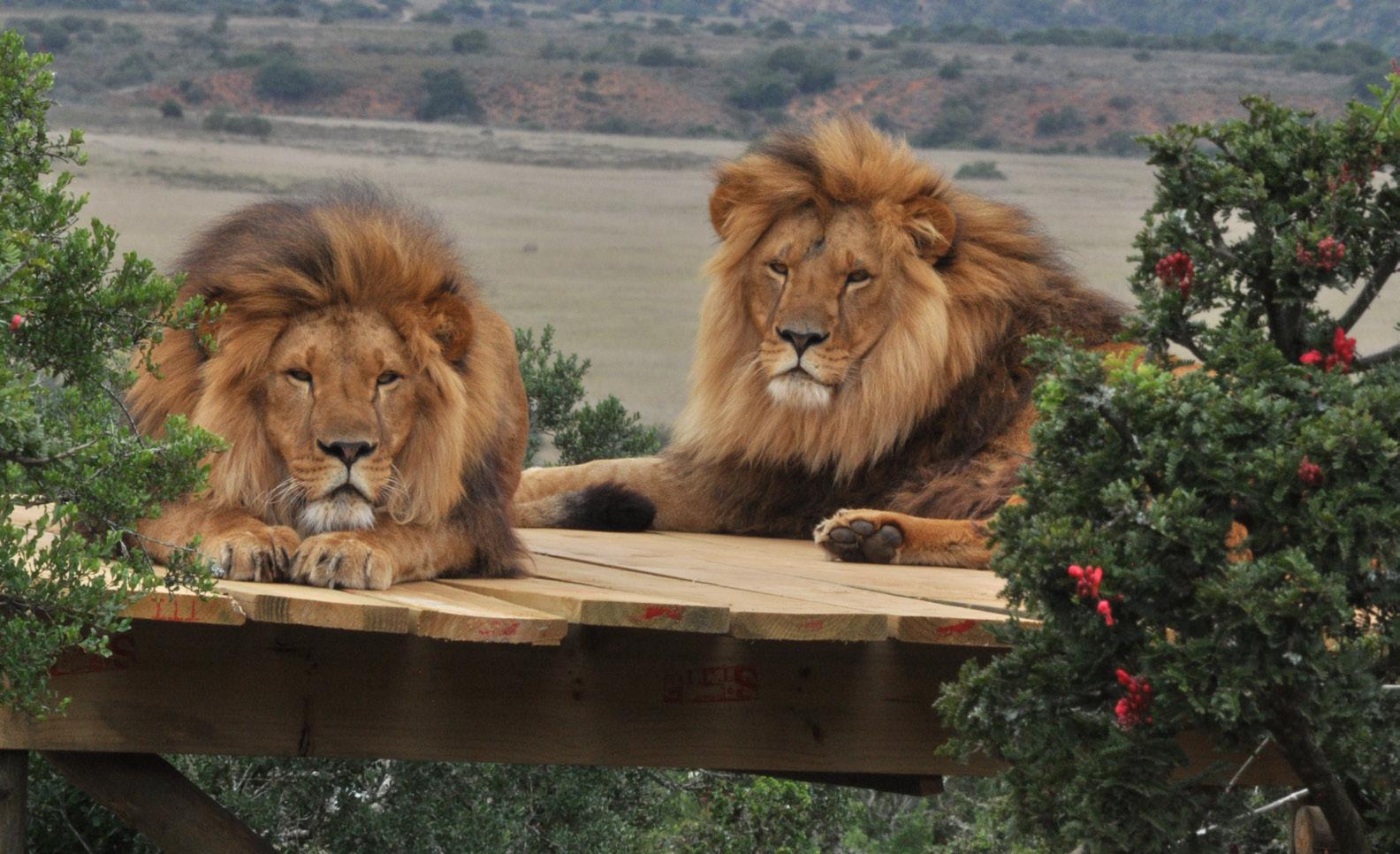

To everyone who helped Tsar and Jamil’s rehoming including Born Free supporters, British Airways Holidays, Cargolux, DHL, FlyFauna, Natuurhulpcentrum, Pride of Africa Wildlife Solutions and Shamwari Private Game Reserve.


Can you help?
After all they’ve endured, Tsar and Jamil could never be released to the wild and will always rely on us. Our thanks to British Airways Holidays for funding their first three years of care. But, they may live 20 years or more, and we now care for 27 lions at four sanctuaries, costing around £200,000 a year. Please help! To become a Lifetime Carer and provide exclusive care for a rescued lion please email leah@bornfree.org.uk
£200,000/year 27
Watch the film of Tsar and Jamil’s epic, 8,000-mile journey at bit.ly/ukrainelions-rescue
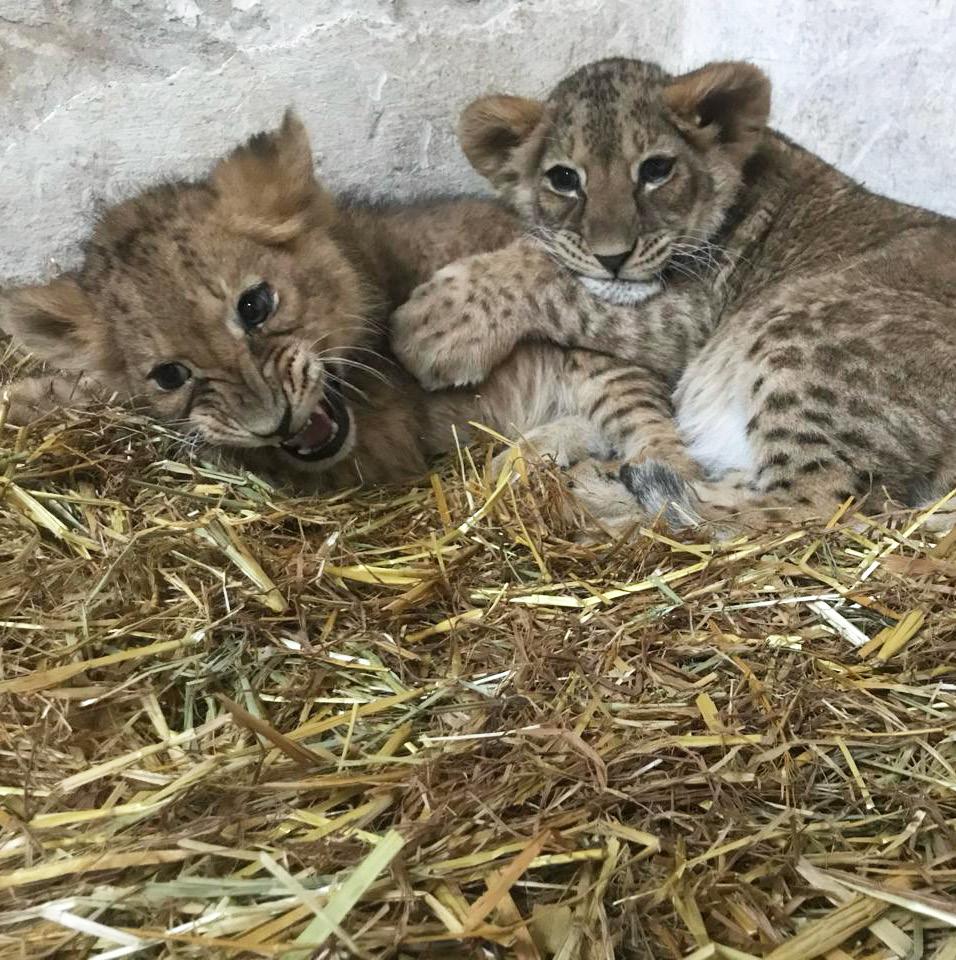

Could there be a more perfect way to celebrate our 40th? After months of planning, two lions – rescued from the dangers of war in Ukraine – are now enjoying the peaceful setting of our Big Cat Sanctuary, at Shamwari Private Game Reserve in South Africa.
Tsar and Jamil are the 58th and 59th rescued lions given a lifetime home by Born Free and, after making their epic journey from Belgium in March this year, have settled in quickly. In fact, they already look right at home!
“We expected them to take weeks to acclimatise,” said our Animal Care Manager, Glen Vena. “But, after only a few days, they appeared calm and relaxed, lounging on the deck of their ‘jungle gym’, observing the sights and sounds of surrounding bushland.”
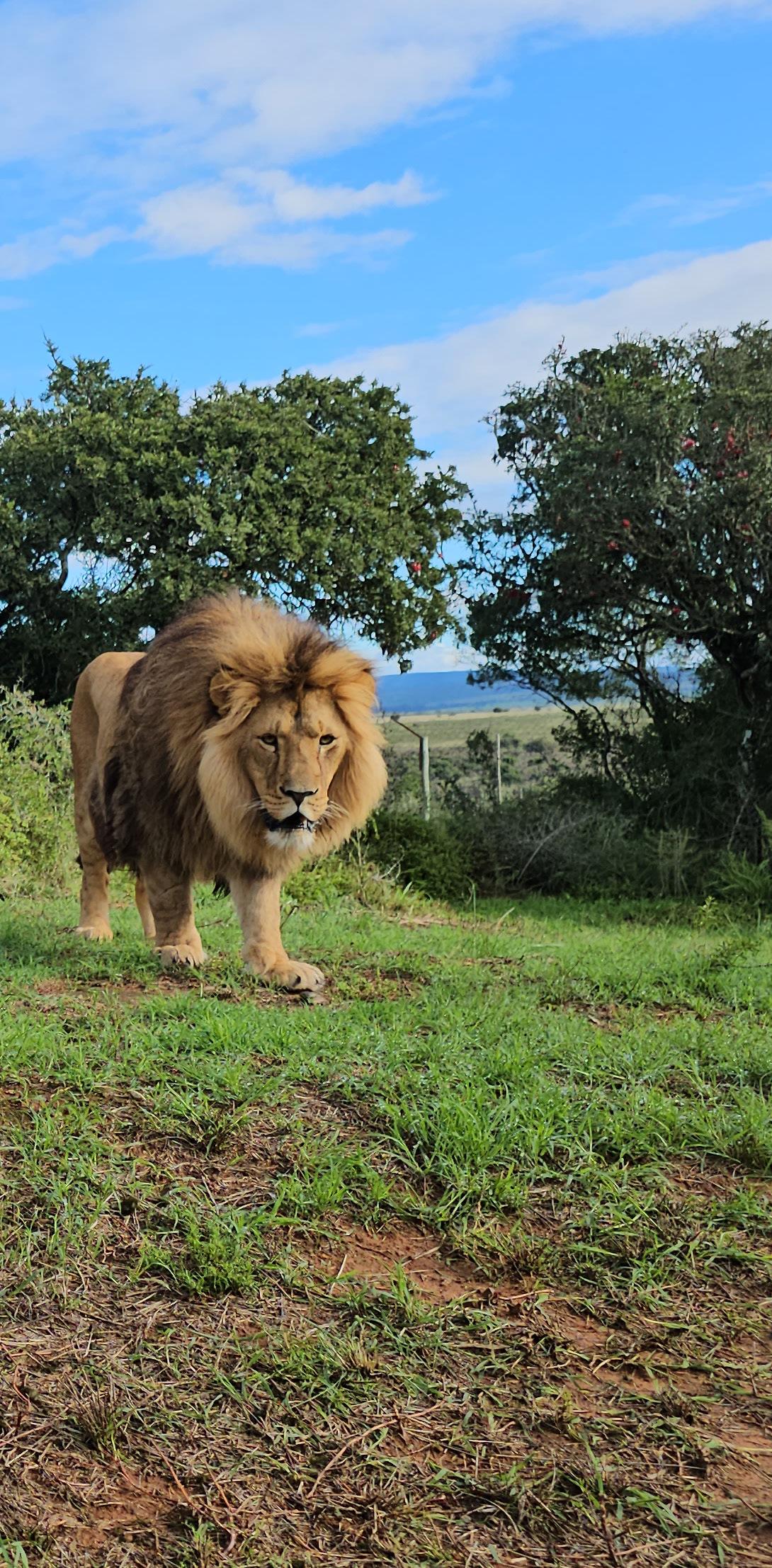
deficiency, and Tsar’s tibia (leg) bones were fractured. Fortunately, with proper care and nutrition, they gradually recovered.
Then, in early 2022, Russia’s illegal invasion of Ukraine presented a deadly new threat. But, the remarkable Ukrainian centre, working alongside a Polish zoo and our friends at Natuurhulpcentrum (a wildlife rescue centre in Belgium) managed to transport the brothers to safety. Specialist care from Natuurhulpcentrum further aided Tsar and Jamil’s recovery but, this halfway house could only provide a temporary solution.
As you can imagine, getting the pair to Africa was a major undertaking. Tsar and Jamil were born at a private zoo in Kharkiv, Ukraine, in January 2021. Just months old, the cubs were sold to an ostrich farm as a tourist ‘attraction’. Kept in utterly unsuitable conditions, they were heavily exploited and, fed a poor-quality diet, became malnourished and sickly.
Thankfully, following pressure from local animal organisations, the youngsters were handed over to a Ukraine rescue centre, but vet checks highlighted some shocking health issues. Abnormally small for their age, both were suffering from calcium
So, last August, Born Free launched a fundraising appeal and began complex arrangements to transport two lions one third of the way around the globe. On 11th March, the pair were loaded into purpose-built crates and flown to South Africa. We were delighted to see them dash straight out of the crates, into the natural bush of their 2.5-acre enclosure. Where nature intended, at last.
“Tsar and Jamil have already experienced their first African rainstorm,” explains Glen. “I thought they’d be scared and hide during the flashing skies and rumbling thunder, but no, they stayed on their decks, observing Shamwari’s vast open areas – very curious they are! Brave cats too, after what they’ve had to endure.”
Tsar and Jamil’s transformation was only possible thanks to every incredible person involved, since their rescue in Ukraine. They already look so at home and, with your help, our mission continues to expose and end the exploitation of wild animals for human profit.
Tsar and Jamil had a terrible start but, we’ve got the rest of their lives to make it up to them! Dr Andrea Donaldson reports on two lion brothers, now safe, thanks to you.Dr Andrea Donaldson Rescue & Care Officer andrea@bornfree.org.uk
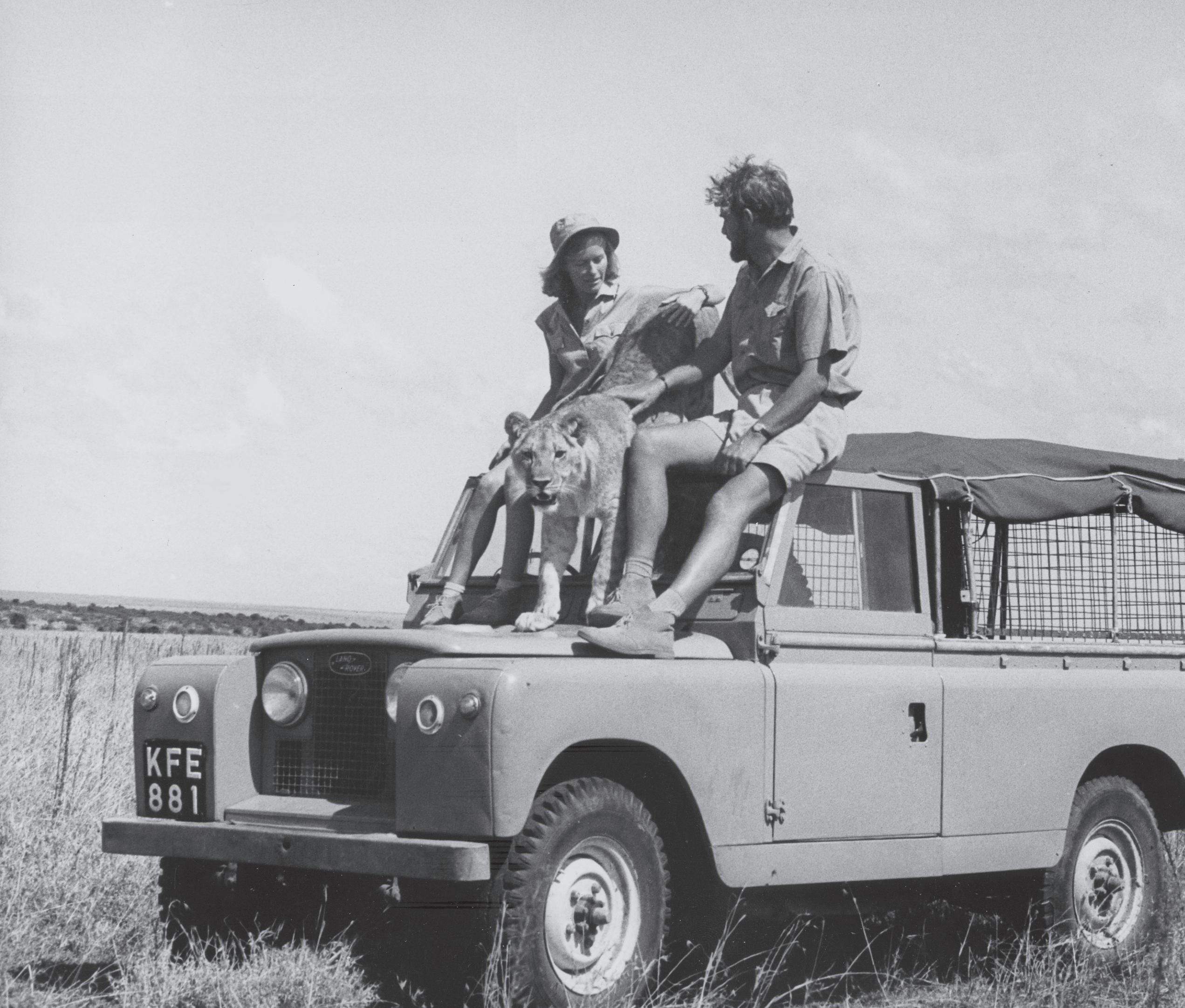
In an inspiring article, adapted from his moving speech at our recent gala, Co-Founder Will Travers reflects on 40 years of Born Free and our radical vision for a kinder world, full of hope.
This is personal. It could all have been so different.
Two actors, a husband and wife, say ‘yes’ to playing conservationists George and Joy Adamson, in the film of a book about a lioness and her successful return – against the odds –to a wild life in Kenya.
Born Free. An unusual story for sure, but afterwards those actors, my mum and dad – Dame Virginia McKenna and Bill Travers MBE – could have carried on as before. Movies, the theatre, maybe some directing… That would have been the anticipated script for the rest of their lives.
But no. No chance. That story, that film, changed lives… including mine.
And yet, I simply could not imagine, back in 1984 – when Mum, Dad and I sat, with a handful of others round the kitchen table, and wondered whether we could turn our outrage at the senseless death of a young African elephant at London Zoo into something more –that we would be where we are today. Forty years on, this is an opportunity to consider where we have been, where we have come from – and where we are going.
Forty years?! That is 14,600 days – a lifetime. You can see on these pages just a tiny fraction of the highlights from those four decades. Individual
“That story, that film, changed lives… including mine.”
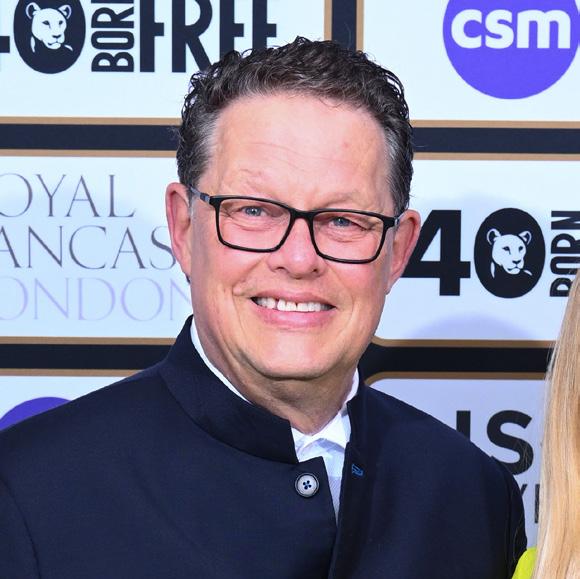
animals saved, threatened species protected, habitats secured, cruelty challenged, exploitation exposed… by good people, with pure hearts and loud voices and a ‘never give up, never give in’ attitude.
For we humans are the most perverse of species. We are capable of such extreme destruction, brutality and global vandalism that we should surely question our own sanity. And yet, we are also capable of the most selfless, extravagant, and self-denying acts of generosity, kindness and love that would melt the hardest heart.
What we must each decide for ourselves is which side of history we are on. Whether we add to the basket of suffering, or whether we increase the impact of kindness. And by reading this article and by supporting us today, representing, as you do, the millions of others who hold Born Free and its values close and dear, you have made that choice. You are the living proof that good will always triumph.
Of course, there is so much more that needs to be done to help heal our increasingly dysfunctional world. When confronted with so much chaos all around us, it’s all too easy to resort to the well-worn phrase – ‘when are they going to do something about it’. Well, my friends, I have somewhat given up on that expectation. It seems that ‘they’ are never going to do something about it – it is up to us.
Acting together, combining our talents, creativity, ingenuity, compassion, effort, drive and determination with the resources at our disposal, we have already demonstrated that we can bring about the monumental change we need. Born Free has:
• Helped end the UK abuse and exploitation of wild animals in circuses and dolphins in dolphinariums
• Worked tirelessly to end the global illegal wildlife trade
• Helped reach, teach and inspire the next generation (nearly 24,000 students on March the 7th alone – World Book Day, page 33)
• Engaged hundreds of thousands of people who live alongside wildlife to partner with us to help reduce wildlife conflict.
Earlier this year, I went back to Kenya, a country I first visited in 1964 when Mum and Dad were making the film Born Free. It was my first visit in over four years. Connecting with our amazing team there, seeing how far the work has progressed, meeting up with old friends with whom I have campaigned for decades, was a thrill and a privilege.
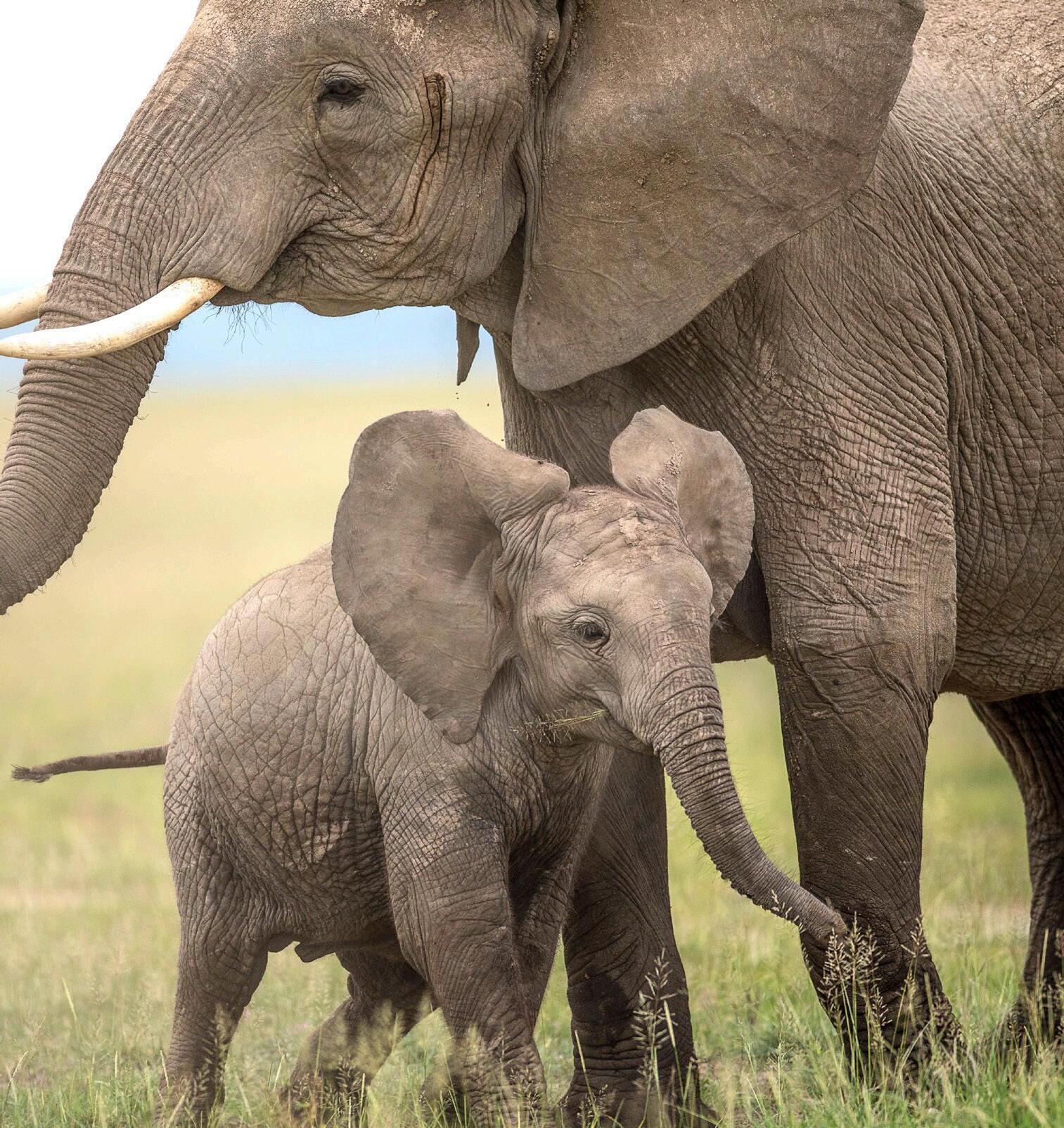

But, I also travelled to Kora National Park, the last home of George Adamson and where he, his brother Terence, and the late Tony Fitzjohn are buried. Kora is quite simply amazing. Nearly 1,800 square kilometres (bigger than Surrey) of dry thorn bush country, bounded by the mighty Tana River to the north, part of a network of protected areas that make up the Meru Conservation Area (twice the size of Dorset). It was George Adamson’s last home, where, for many years, together with the iconic
“Individual
animals saved, species protected, cruelty challenged…. by good people, with pure hearts, loud voices and a ‘never give up, never give in’ attitude.”
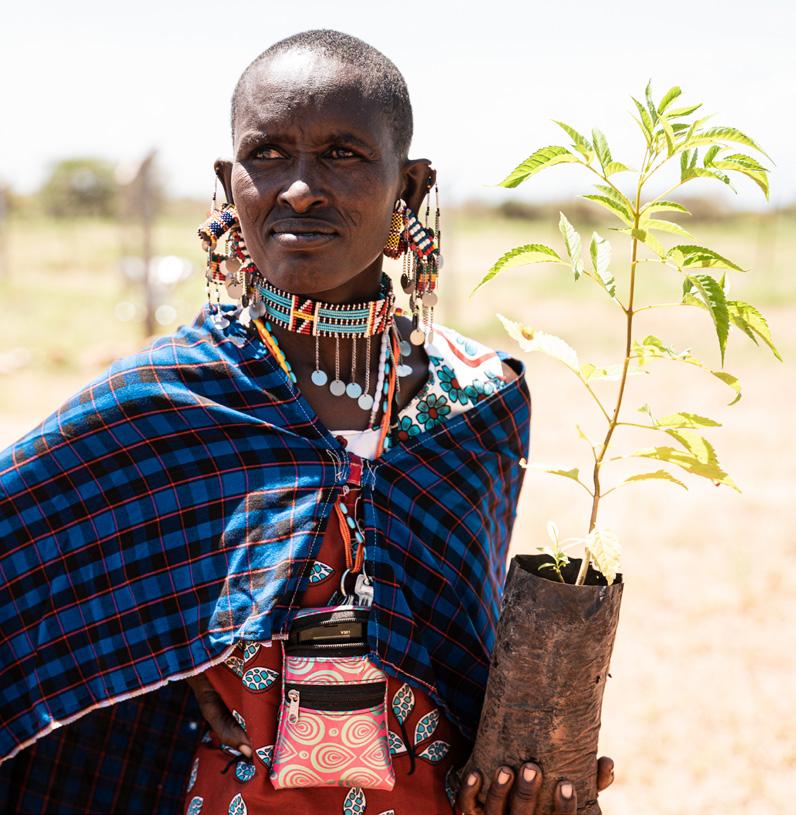
Tony Fitzjohn, he did what he did best – returning lions and other big cats to the wild, quietly, without fuss, living the values he believed in.
And that sums up Born Free, and the work of our nearly 150 team members in the UK, Kenya, Ethiopia, South Africa, Cameroon, India, Sri Lanka, our colleagues in the USA, Australia, France, and our partners around the world.
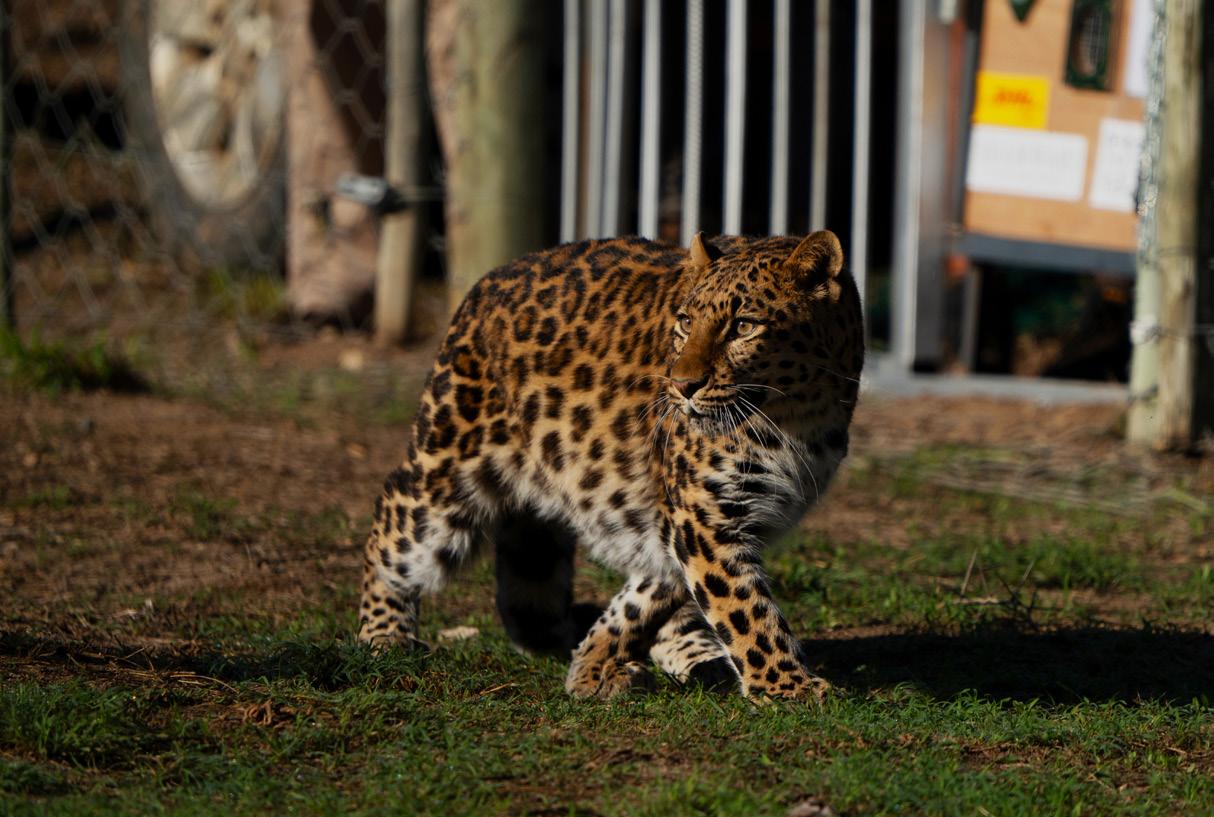

This is about living our values –whether it is:
• Saving a single animal in distress (thank goodness our latest rescues are now safe: lions Tsar and Jamil, page 10 and leopards Alda and Ginny, page 27)
• Protecting a species under threat
• Supporting a child, a family, a community
• Wildlife law-enforcement
• Wild animal-friendly policy and legal protections
• Working with our friends in the business sector
• Engaging media
• Working with supporters, not least our Circle of Compassion, Champions, Lifetime Carers, Ambassadors, Patrons, influencers and more.


How did we get here? It’s a team effort! For four decades, Born Free has enjoyed the support and commitment of an amazing array of talented people who have joined us on our journey, sometimes briefly, sometimes for decades. They have all, in their own way, contributed to what we are today – truly the best we’ve ever been.
Our supporters are more engaged and diverse than ever before. Our Trustees – one nearly 93, another just 21 years old – offer unparalleled guidance, insights, and support.
And what would my dear Dad think of all this? Truthfully, his vision and values are still an ever-present factor in our lives. My mum, Virginia, and I often say to ourselves, when
considering the latest challenge, ‘what would Dad have done’. I am sure many of us do that in our own lives. And, invariably, it helps lead us to a braver, bolder, more courageous decision. He was never one to hold back!
My friends, by reading this article, by supporting Born Free, you’re helping us celebrate our 40th milestone, share fond memories, support our efforts, and renew our commitment to do what we can to save and protect the natural world and its wild citizens, one animal at a time.
“We must decide which side of history we’re on. Whether we add to suffering, or increase kindness. You are the living proof that good will always triumph.”
And as Virginia is fond of saying –it’s all about one. One animal, one deed, one community – one family. For that is what we are proud to call ourselves – the Born Free Family. Not bound by blood but by common cause, determined to do our best for those who have no voice, except ours. Indeed, we are the voice of the voiceless.
On our launch day, 40 years ago, as Mum, Dad, and myself stood staring, slightly bewildered, at the banks of cameras at London’s Commonwealth Institute, we received a phone call. It was Joanna Lumley. She had heard about our mission on the radio. “I am with you 100%.” she said. “Is there anything I can do?” An hour later she was being interviewed by Leonard Parkin for the main ITV lunchtime news bulletin. How lucky we were then. How lucky we are today. You can hear from our Founder Patron – and an incredible humane being – Dame Joanna Lumley on page 22.
What will the next 40 years hold for the Born Free Foundation? Huge challenges, of that we can be sure. But, also, huge opportunities too. We will never give up and never give in. Every individual wild animal we can help, every threatened species we can support, every child we can inspire, every community we can empower, every mind we can open, every heart we can touch…
Every journey starts with a step. Let our march towards a better, more compassionate, future begin – today!
Will Travers OBE Executive President & Co-Founder will@bornfree.org.ukInspired by Will? Everything we do for wild animals in need is made possible by your generosity. Please donate, adopt, consider leaving a gift in your Will, or find more ways to support wildlife at bornfree.org.uk
Since 1984, with your support, we’ve had some great wins:
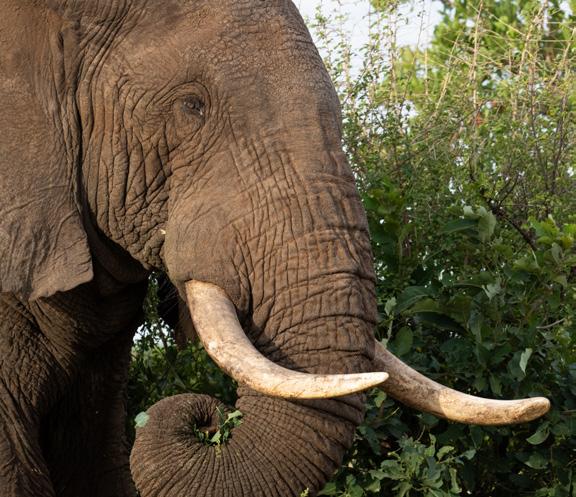
We helped secure an end to the international ivory trade in 1989 and, since then, helped Kenya’s elephants to more than double to over 36,000

Our UK campaigns saw an end to captive dolphin exploitation in 1993, then wild animal circuses in 2020.
We’ve transformed the lives of 117 big cats (59 lions, 20 tigers, 14 leopards, 24 cheetahs), rescued from zoos, circuses and the illegal pet trade.
Since our lion conservation work began in Kenya in 2010, numbers have increased by 25% to 2,500 lions.
Since our tiger conservation work began in India in 2004, numbers have more than doubled to some 3,682 tigers.
Since our rhino conservation work began in Kenya in 2014, numbers have increased by 72% to 1,811 rhinos – 938 black, 873 white.
Visit

We help local people safely coexist with wildlife and inspire tens of thousands of students across the UK, South Africa, Kenya, Ethiopia, India and more.
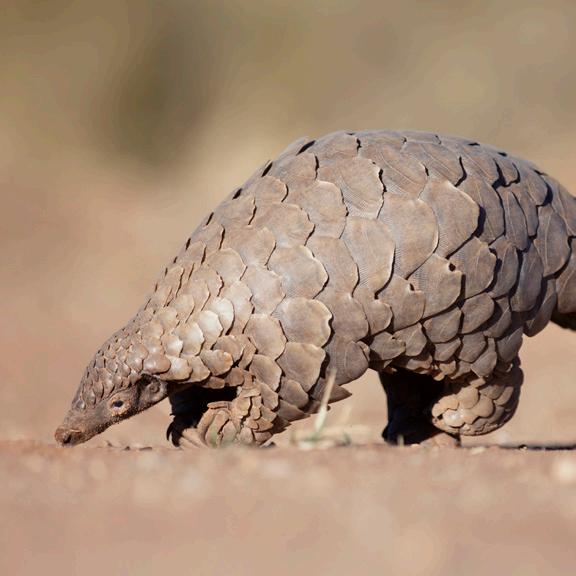
We influence a huge range of wild animal-friendly legal protections, not least within global initiatives on wildlife crime, trade, biodiversity and migratory species.

Help local people coexist alongside wildlife and secure a safe future for wild lions, elephants, tigers, gorillas, pangolins, giraffes and more.
You can help us be a voice for animals in need:
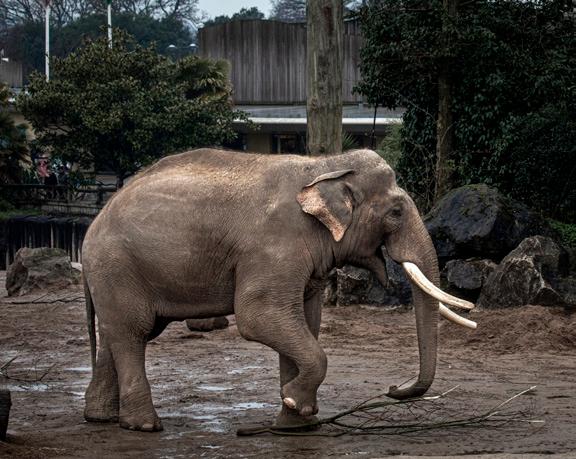
More than 50 elephants are kept in 11 UK zoos. These animals suffer physically and mentally. Help phase-out keeping elephants captive in the UK (then the world!).
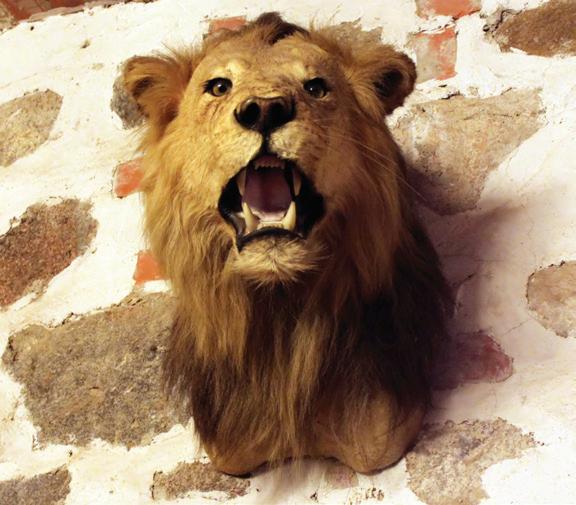
Shooting wild animals for fun, to hang their heads on the wall? We say no! Help end the import of grotesque trophies into the UK (then Europe, then the world!).
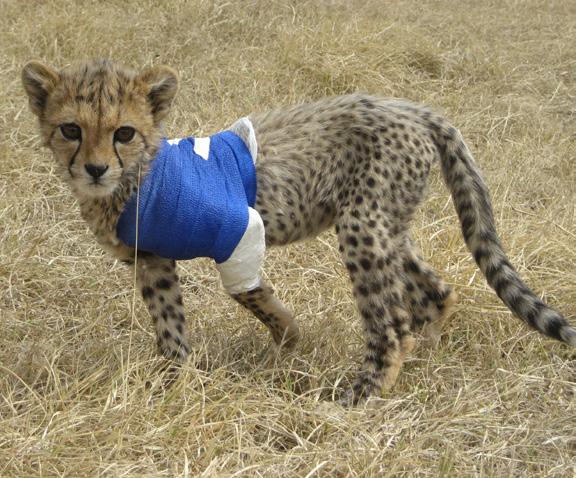
Help rescue more individual animals from lives of misery, return them to the wild when possible, or provide quality ‘care for life’ in world-class sanctuaries.
to get involved

300+ dolphins and whales are held in Europe’s 30+ dolphinaria, yet live short, unhappy lives. Help phase-out keeping dolphins captive in Europe (then the world!).
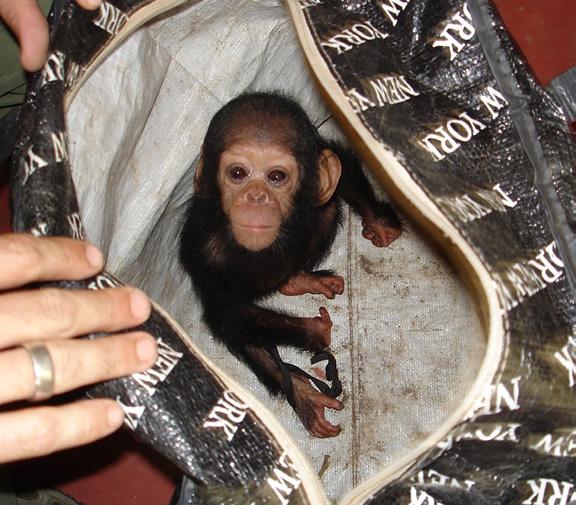
Criminal networks cause horrific animal suffering and drive species to extinction. With your help, let’s tackle illegal trade and end wildlife crime.
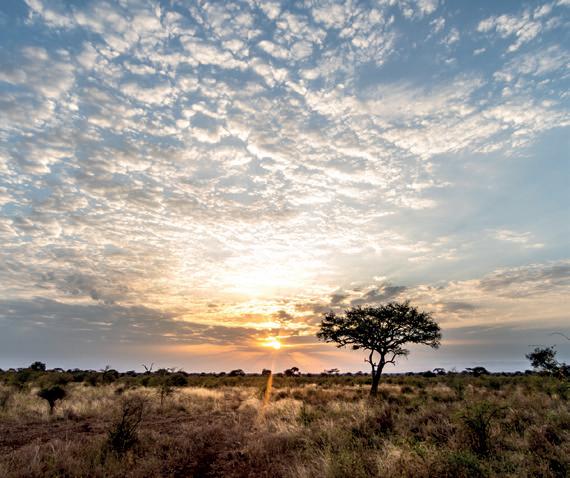
Put wild animals, habitats and nature recovery at the heart of the global agenda by advocating for policies to give all life on earth a fighting chance.
Born Free colleagues share their visions for the NEXT 40 years.
“A future where elephants are no longer kept in zoos and can live without the threat of being captured for captive exploitation.”
Chris Lewis Captivity Research & Policy Manager, UK
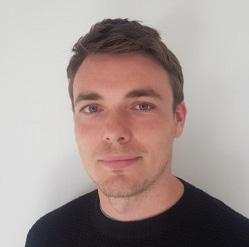
“For the world to be a safe place for apes, elephants and indeed every species, where human beings respect nonhuman beings, in their ecosystems.”
Ian Redmond Senior Wildlife Consultant, UK

“To work closely with local people to increase abundance of gorillas and other wildlife in the Dja reserve and protect their habitat.”
Donald Mbohli Programme Lead, Cameroon

What are your wildest dreams for the next 40 years? Send us your ideas via social media or celia@bornfree.org.uk
“For our education programme to impact our country, so illegal trafficking is stopped and wild animals can live in their natural habitat.”
Bereket Girma Country Director, Ethiopia

“I dream of a future in which nature is respected and flourishing, giving all people a healthy, safe and joyous world to live in.”
Dr Nikki Tagg Head of Conservation, UK

“No more sanctuaries! A future where no wild animals need rescuing from exploitation, so the need for lifetime care becomes obsolete.”
Maggie Balaskas Head of Rescue & Care, UK
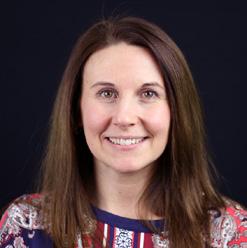
“To see all wildlife to thrive in the wild, and also for humans and wildlife to live in harmony with nature.”
Jaquiline Ntinyari Twiga* Team, Kenya

“A world where biodiversity conservation and ecosystem management are integrated into governance mainstream practice.”
Manori Gunawardena Born Free Sri Lanka

“A future where wild animals aren’t held captive or exploited for human entertainment and an enlightened next generation leads the way with compassion.”
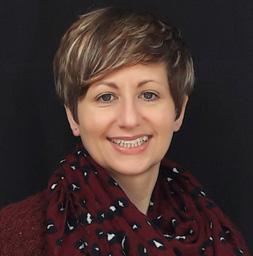
Sarah Jefferson Captivity Campaigns Information Coordinator, UK
“A world where the progress and development of countries is also measured by how well they preserve their biodiversity and support its guardians.”
Yash Dalmia Network Support Officer, India

“For heaven on earth – where people are kind, nature is nurtured, wild animals cherished and zoos are no more.”
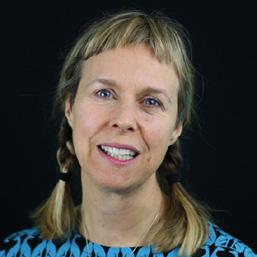
Celia Nicholls Editor, UK *Swahili
To mark 40 years of Born Free, we’ve come up with 40 practical ideas!
1. Help wildlife in your area
Join a local project or beach clean.
2. Stop Selfish Selfies
Spread the word! Say no to photos with captive wild animals.
3. Build a bug hotel
Pile up logs or sticks in your garden.
4. Consume less
Buy less, recycle more, save energy, reduce waste.
5. Watch Born Free & other wildlife films
Then share with others.
6. Local wildlife centres
Where are they, can you help?
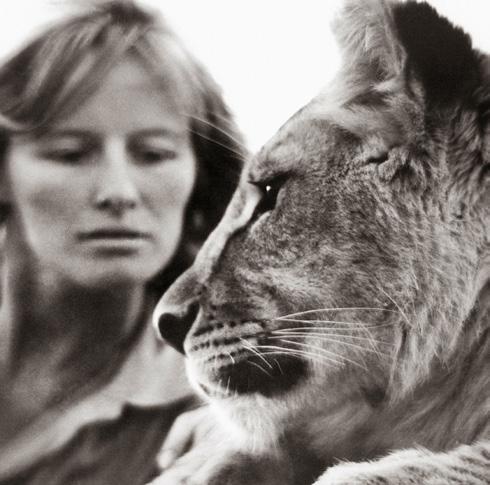
7. Avoid wild animal encounters
Say no to ‘hands-on’ events at school or parties.
8. Go Wild fundraising
Download our free pack and raise funds.
9. Create local wildlife corridors
Lobby your council to connect habitats.
10. Pick up litter
Rubbish can harm wildlife, but do take care!
11. Wildlife-friendly gardening
Dig a pond, plant wildflowers and nectar rich plants.
12. Join Plantlife’s No Mow May
Boost flowers with a wild lawn.
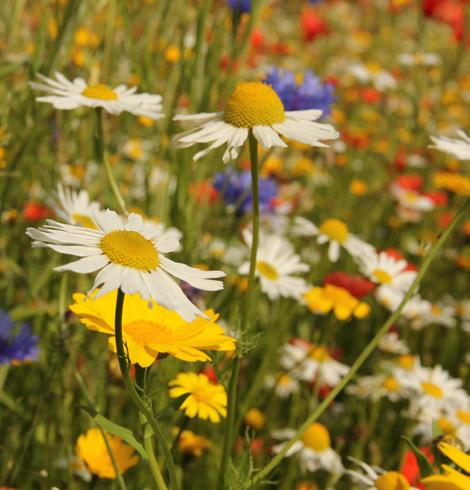
13. Raise the Red Flag
Report captive wild animal suffering to Born Free.
14. Everyday choices
Help nature: fly less, eat less meat.
15. Bee a hero
Sugar water can boost a tired bee.
16. Adopt a Born Free animal
Makes THE greatest gift!
17. Ban elephants in zoos
Sign our Elephant-Free UK petition.
18. Nominate Born Free
As your work or school ‘chosen charity’ for fundraising.
19. Peacefully protest
Get active to protect nature.
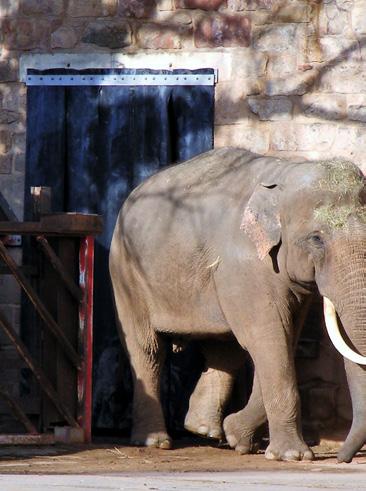

20. Talk, talk, talk
Spread optimism, share our social media posts.
21. Help end the UK badger cull
Sign and share our petition.
22. Drive with care
Keep wild animals in mind.

23. Boycott zoos & dolphinaria
And encourage others to do the same!
24. Create a frog & toad shelter
Use a compost heap, log pile or plant pot!
25. Find humane solutions
Go ethical to control any ‘pests’.
26. Plant a tree for Earth Day
At home or join a local event.
27. Ban UK trophy imports
Sign our petition to help end hunting.
28. Say no to wild pets
From parrots to axolotls.
29. Add a swift box
Put outside your house, no garden needed!
31. Go bat-friendly
Plant night-scented flowers, add a bat box.

32. Share fun facts
Get people thinking about animals.
33. Citizen science
Help survey and count bats, birds or even lions!
34. Choose ethical tourism
From UK bird-watching, to African safaris.
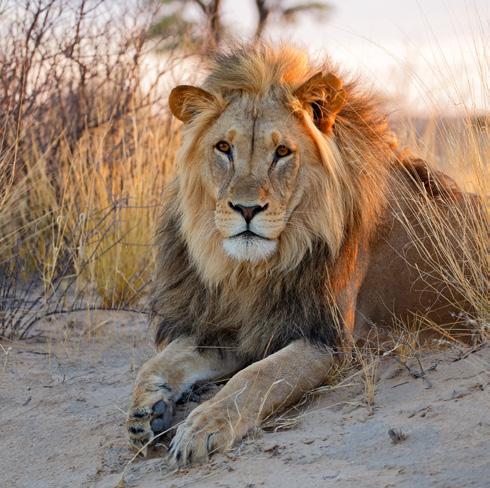
35. Say no to wild trinkets
Don’t buy ivory, coral, skins* etc.
36. Help birds flourish
Feeders and a bird bath are a lifeline!
37. Hedgehog-friendly bonfires
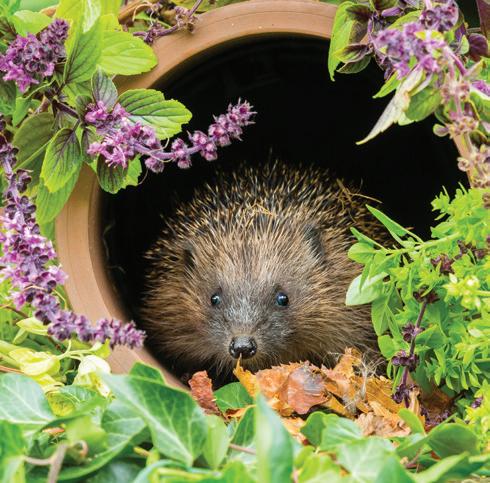
Follow our online guide.
38. Garden corridors
Add hedgehog holes to your fence.
39. Raise awareness
30. Urge local candidates…
…for the next General Election to pledge to help wildlife if elected.
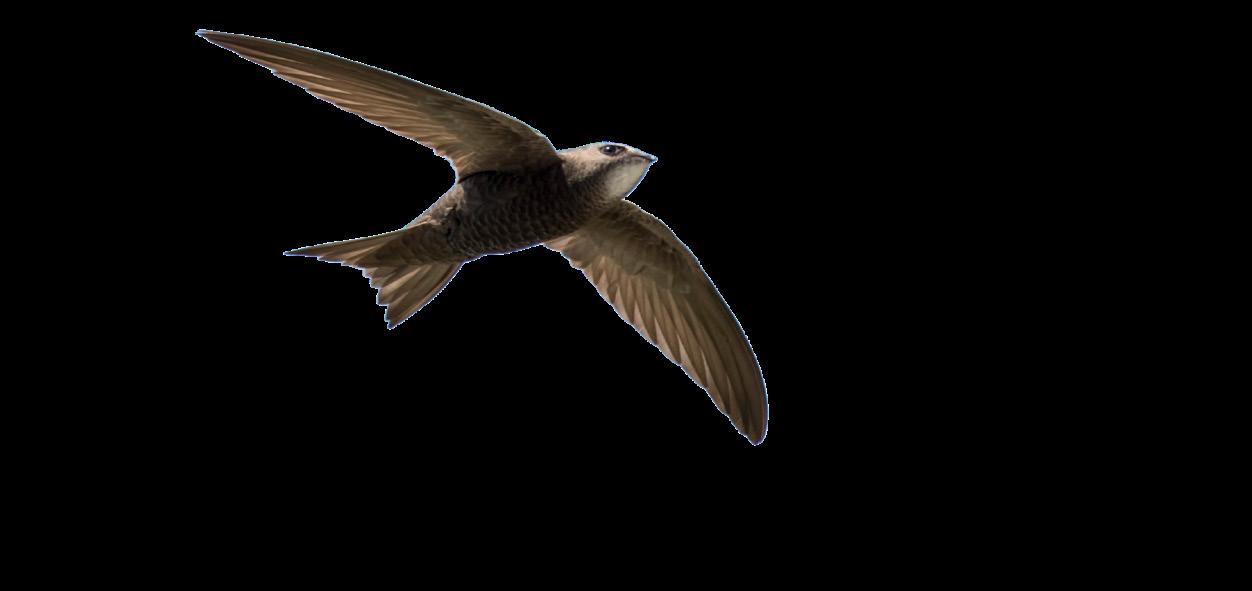
Share wild animal issues on social media.
40. Reduce local wildlife conflict
Secure your bins from rats, gulls and foxes.
For full details visit bornfree.org.uk/40-ways
We promote compassionate, wild animal-friendly legal protections. Projects: ending captive exploitation, tackling wildlife trade & trafficking, reducing zoonotic diseases, protecting migratory species, regulating exotic pets, ending trophy hunting etc
Animals: Orca Projects: conservation Partners: OrcaLab
Main office
Animals: UK & global species
Projects: base for all our work – policy, conservation, rescue & care and education, including UK-based work (eg wildlife rescue centres, wildlife guidance for vets, schools, anti-captivity, stop badger cull, Nature 2030 etc) Partners: Wildlife & Countryside Link
Animals: Pangolins
Projects: rescue, rehab, education
Partners: Sangha Pangolin Project
Born Free USA, our sister organisation
Projects: Sharing our compassionate agenda for wild animals in captivity and the wild (separate income & budget) bornfreeusa.org
Everything we do for wild animals in need is thanks to your generosity. There are many ways you can support us. Visit bornfree.org.uk and click on ‘Support Born Free’.

Animals: Gorillas, chimpanzees, forest elephants, grey parrots, pangolins and more! Projects: Guardians of Dja, rescue & care, rehab, crime-fighting Partners: Limbe Wildlife Centre, Ape Action Africa, EAGLE network (in eight African countries)


Animals: Vervet monkeys, baboons Projects: rescue, rehab, education Partners: Zambia Primate Project*, Chipembele Wildlife Education Trust
*Operated by Game Rangers International
Country office
Animals: Lions, leopards, servals Projects: rescue & lifetime care, plus education Partners: Shamwari Private Game Reserve, Panthera Africa Big Cat Sanctuary
Animals: Lions, tiger
Projects: rescue & care
Partners: Animanatura Wild Sanctuary
You can see where we work and which species of animals we focus on.
Country office
Animals: Lions, cheetah, hyena, gelada, tortoises and more!
Projects: Ensessa Kotteh Wildlife Rescue, Conservation & Education Centre, including animal care & rehab, plus school & community outreach
Animals: Brown bears
Projects: rescue & care
Partners: Arcturos Bear Sanctuary
Animals: Elephants, rhinos, primates, hyenas and more!
Projects: rescue, rehab & conservation
Partners: Lilongwe Wildlife Trust, Carnivore Research Malawi
Partners: Ethiopian Wildlife Conservation Authority
Animals: Chimpanzees
Projects: conservation, rescue & care
Partners: Bulindi
Chimpanzee & Community Project, Ngamba Island
Chimpanzee Sanctuary
Animals: Tigers and more!
Projects: Satpuda Landscape Tiger Partnership, Bannerghatta Tiger Sanctuary
Partners: nine Indian conservation organisations, Wildlife SOS
Animals: Orangutans
Projects: rehab & conservation
Partners: Orangutan Foundation
Spiritual homeland, country office
Animals: Lions, elephants, giraffes, rhinos, hyenas and more!
Projects: school education, community action, Pride of Meru, Saving Meru’s Giants, Pride of Amboseli
Partners: Kenya Wildlife Service, Amboseli Trust for Elephants, Wildlife Research & Training Institute
Animals: Asian
elephants
Our work: conservation, ending exploitation


Our Head of Communications, Amanda Poole-Connor, speaks to Dame Joanna Lumley –actor, presenter and activist – about 40 years of supporting Born Free.
From moving rare giraffes and championing India’s tigers, to fighting the ivory trade, narrating awardwinning films (page 5) and more, our cherished Founder Patron has been with us since day one and supports us every step of the way.
I’ve spent much of my life supporting and loving this Born Free family, and what you do. I think part of it is because it was started by a family – Bill, Virginia and Will. Every part of Born Free has always focused on animals in a very individual and protective way – though what we’re taking on is huge, of course.
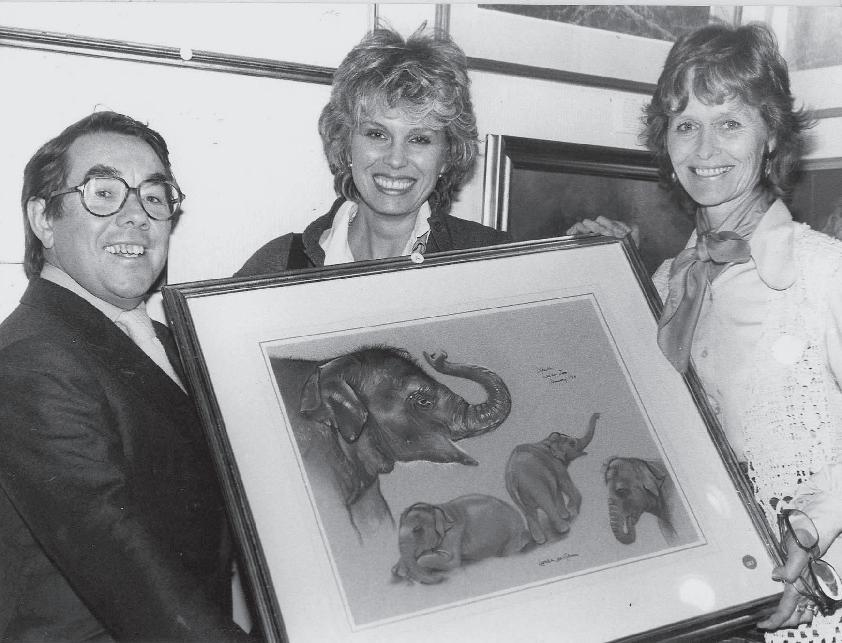
Bill was the first person I can recall to say that every animal is separate and different. Just as we know with our different cats and dogs and horses, every single wild animal is just as important and special. This is what makes every appeal we do – whether to rescue lions, free elephants, or protect wild areas – even more special.
You’ve been with us since the day we began, is there a highlight?
I loved going to Africa with Will. We did some filming in Kenya when we were translocating some giraffe together*. It was fantastic to see the work on the ground and be near the animals. It’s something you never forget in your whole life.
“I love Born Free because at your brave heart is the welfare of animals and the protection of their habitats, whilst caring for the people who surround them.”
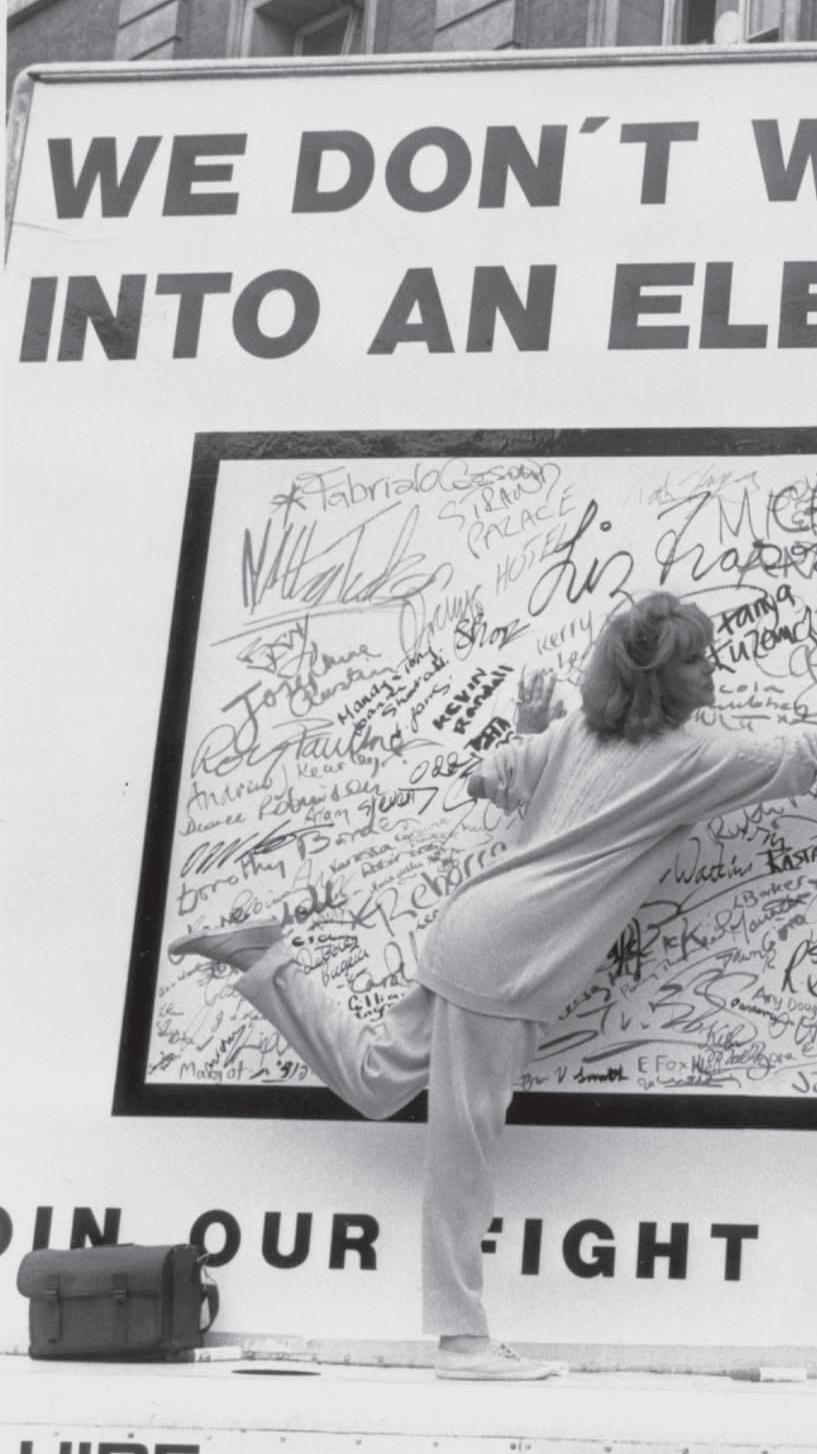
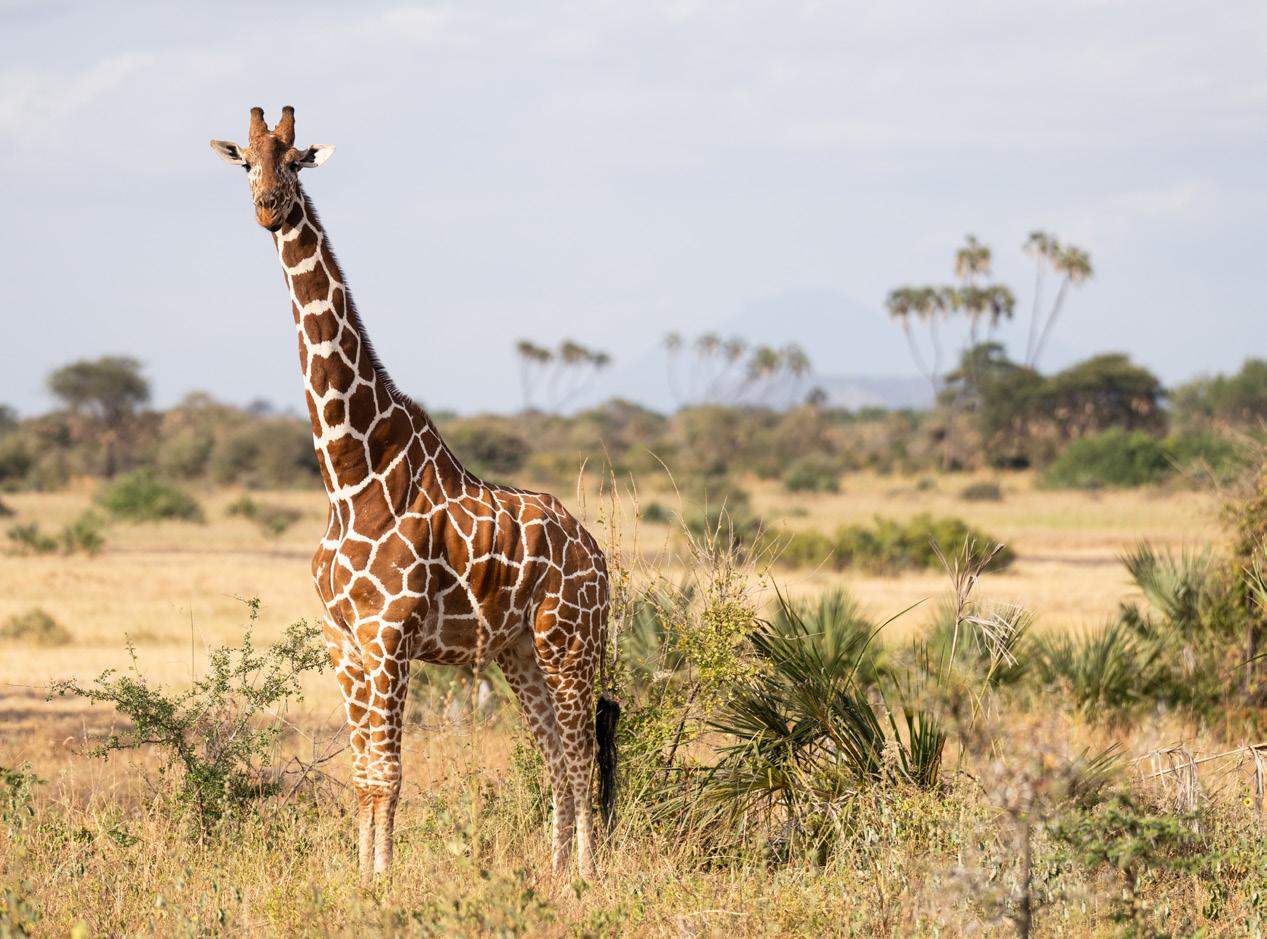
“When I went with Born Free to Kenya, I fell hook line and sinker for giraffes. It was so special to get close to them. Extraordinary, almost mythical creatures!”
Is there anything you’d like to say to supporters?
Thank you, with all my heart. Even if it is the humblest donation, maybe £3 a month, the constancy of support is what we rely on. It means the absolute world. So, thank you all so very, very much.
The strangest thing is that, 40 years ago, people thought the world was forever. Africa was forever. Nothing would ever run out. And suddenly it’s like a car crash. Things are dying out because of human beings and our effect on the climate, but also what we’ve done in the past, our impact. So, we must make reparations. It’s never too late to say sorry to the world and try to make it better.
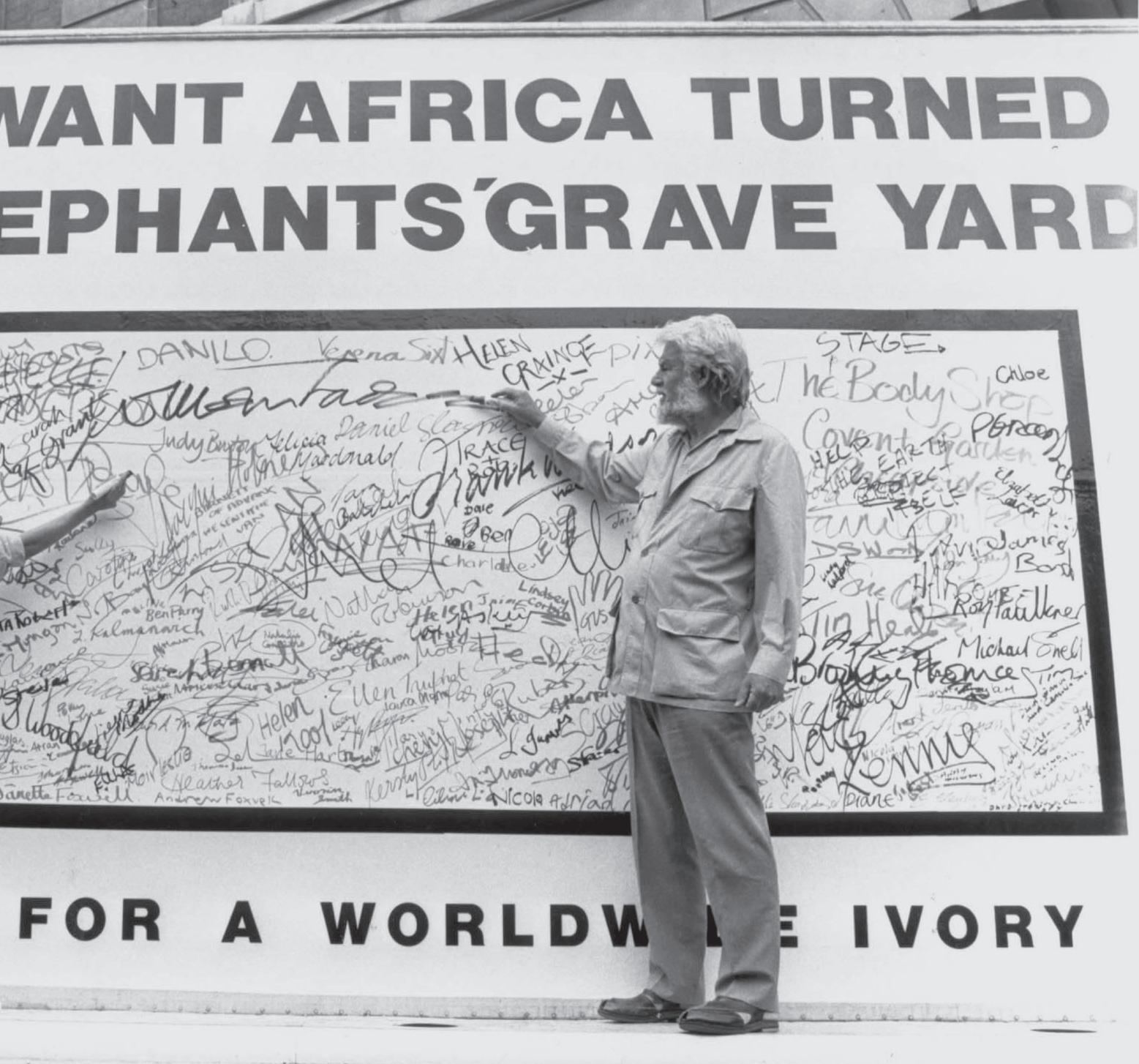

2017: raising funds at our Beyond the Bars event
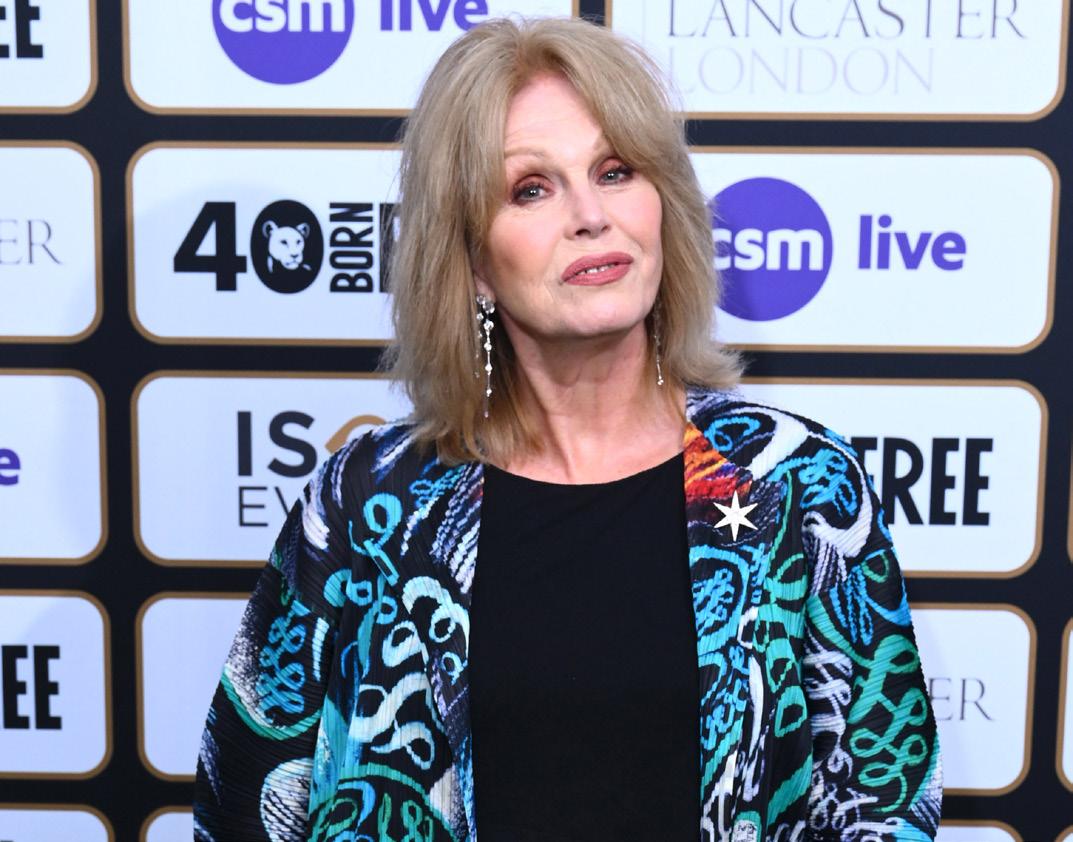

2024:
2011: modelling
Catherine Best’s exquisite necklace**
“Don’t turn your back: this is our problem and our responsibility, yours and mine, with Born Free leading the way. Let us make it our pride and joy.”
“The majority of zoos remain what they have always been – places which exploit wild animals for public entertainment and profit.”
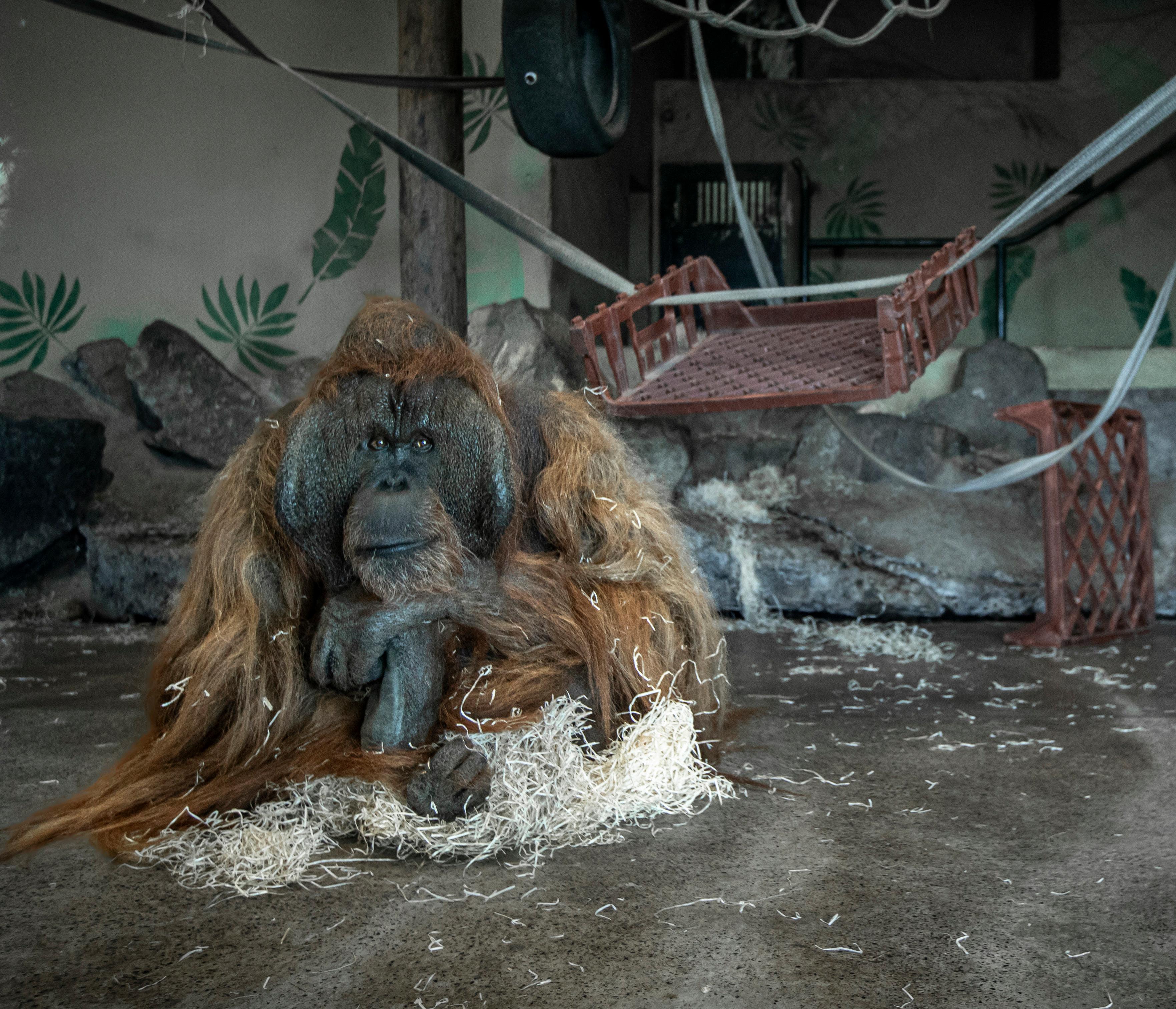
Dr Mark Jones and Sarah Jefferson
consider our history of compassion and explain why speaking out for captive wild animals is as important as ever.
Forty years ago this March, the actors Dame Virginia McKenna and Bill Travers MBE set up our charity with their eldest son Will. Originally called ‘Zoo Check’, in 1991 we were renamed the Born Free Foundation in honour of the book and film, bringing our growing range of projects under one dynamic banner.
One animal had led to our creation – a young female elephant from Kenya called Pole Pole, with whom Virginia and Bill worked on the 1969 film An Elephant Called Slowly (page 8). After filming, and despite the actors’ efforts to prevent the move, Pole Pole was gifted by the Kenyan Government to London Zoo, where she sadly died alone in 1983, aged just 17. Zoo Check was founded the following year, shining a light on the suffering of wild animals in captivity.
Over four decades, Born Free’s activities have expanded to include field conservation, wildlife rescue, education and policy work. However, the welfare of individual animals remains front and centre of everything we do. To this end, the first line of our mission is to end the exploitation and suffering of wild animals.
Sadly, there are estimated to be more than 10,000 zoos and aquariums across the world, housing millions of animals. Some are members of global or regional associations, although this by no means guarantees their animals are well looked after. Many are not even members of such bodies, and the degree to which governments regulate zoos is, at best, variable, at worst, wholly inadequate.
Here in the UK, more than 300 facilities are licensed under the Zoo Licensing Act, housing everything from big cats to polar bears, giraffes, elephants, apes, meerkats, penguins, birds of prey, fish and a myriad other species. In an effort to distance themselves from their history of being places where visitors ogle ‘mysterious, exotic animals’, today many zoos claim to be vital centres for conservation, research and education, and to provide the best possible conditions for the animals they keep.
But, although some zoos have closed or been shamed into improving, the reality is little has changed for the better in recent decades. The experience of most individual animals held captive remains extremely poor, and the contribution zoos make to conservation and education vastly overstated. The majority remain what they have always been – places which exploit wild animals for public entertainment and profit.
Unbelievably, there are still more than 50 elephants housed across 11 zoos in the UK, despite experts agreeing the welfare of these highly intelligent, socially complex, and wide-roaming animals cannot be met in captivity. Two live alone. Our 2022 report Elephants in Zoos: A Legacy of Shame details zoo elephant suffering and the damage to family groups when individuals are brutally taken from the wild and shipped to zoos around the world.
Last October, we released our award-winning animation Enough is Enough (page 5). Telling Pole Pole’s story, the short film highlights the plight of elephants in zoos and calls for their keeping to be phased-out, something we’ve championed since we began. Thanks to our efforts, there are no more elephants at London Zoo but, with your help, there is much more to do.

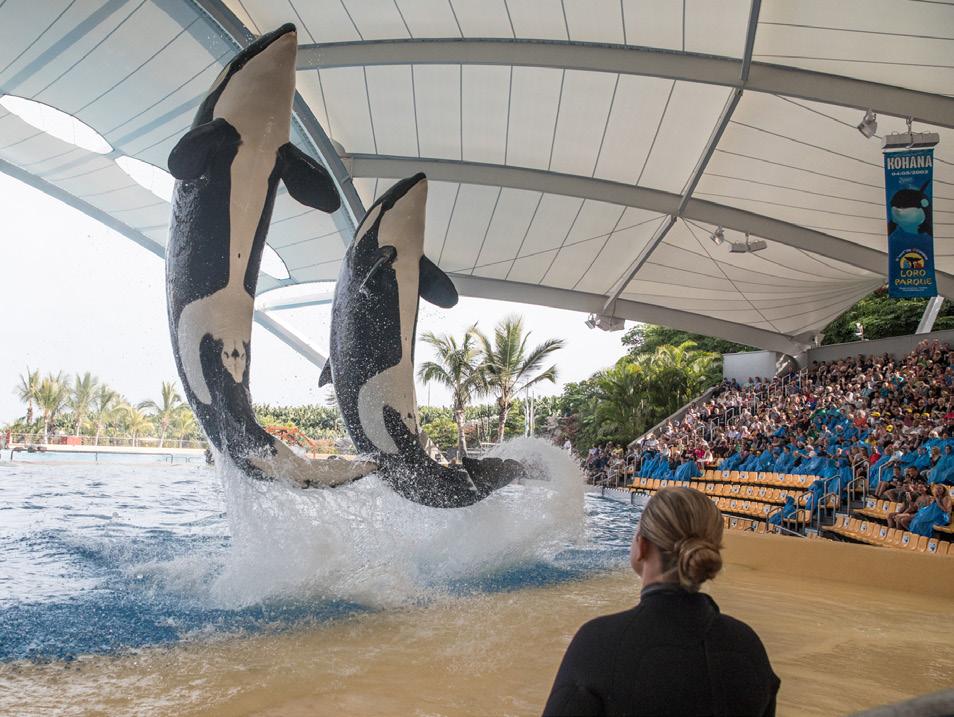
Thanks to our efforts, alongside those of our partners and supporters, the last dolphinarium in the UK closed some 30 years ago and legislation makes it unlikely any could reopen. However, more than 300 whales and dolphins are still held in concrete tanks and exploited in grotesque circus-style shows in over 30 dolphinariums across the European Union, and many more beyond.
This summer we’re working with our Dolphinaria-Free Europe Coalition partners to bring an end to this travesty, not least by encouraging the tourist industry to stop selling activities exploiting captive dolphins. We’ll report back soon.
Millions more wild animals are traded and kept as exotic pets, even dangerous animals such as lions, tigers, crocodiles and venomous snakes. These species haven’t been domesticated for generations like traditional companion animals, and their complex physical, psychological and social needs can never be met in people’s houses or gardens. As a result, these pet animals typically live miserable and foreshortened lives.
Our 2021 joint report with the RSPCA, The Exotic Pet-demic, highlighted the scale of the problem in the UK, where almost any wild species can legally be kept as a pet. In February this year, our updated research into dangerous wild animals kept as pets generated massive media interest and shocked many people. The collection of animals for trade can devastate wild populations, while exotic pets who escape or are released can impact native wildlife and the wider environment.


Born Free campaigns to end keeping wild animals in zoos or people’s homes. But, any solutions must prioritise the welfare of those already held captive, while preventing the acquisition of new animals. The ‘phasing out’ of zoo animals needs to begin by ending further trade and breeding.
We must then focus on relocating remaining animals to protected areas or genuine sanctuaries, or, where not possible, consolidating in the best possible facilities. This work is already well underway. For example, tens of thousands have signed our petition calling to compassionately phase-out elephants in UK zoos.
Born Free is also campaigning for a complete overhaul of UK and Europe’s exotic pet legislation. As well as pushing for a ban on keeping monkeys and other primates, we’re calling for a ‘positive list system’, where species can only be traded and kept if their welfare can be fully provided for, they pose no risk to people, other animals or the wider environment, and trade doesn’t threaten wild populations.
The industries that cruelly trade in and exploit wild animals are well established, well funded and, often, well connected, and the solutions to these problems aren’t easy to achieve. Nevertheless, with you by our side, Born Free will never stop fighting and campaigning to end the exploitation and suffering of wild animals, and to keep wildlife where it belongs – in the wild.
Dr Mark Jones
Head of Policy & Veterinarian markj@bornfree.org.uk
Sarah Jefferson
Captivity Campaigns Information Coordinator sarahj@bornfree.org.uk
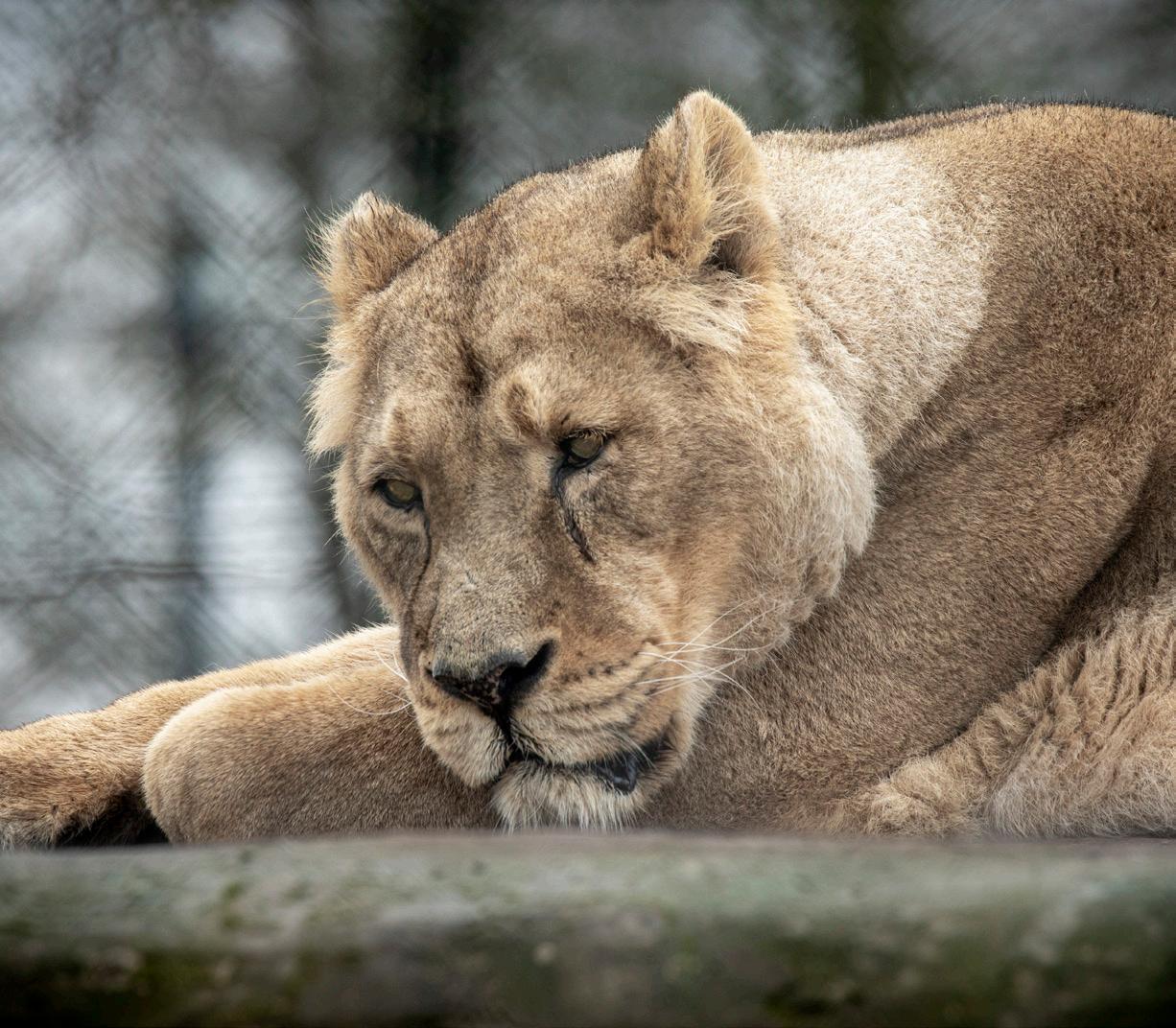
In 1992, our Co-Founder Bill Travers MBE first coined the term ‘zoochosis’ to describe the obsessive, repetitive and abnormal behaviour so often exhibited by wild animals in zoos. Bill dedicated the last three years of his life filming in zoos in Europe for his devastating TV documentary, The Zoochotic Report Sadly, Bill died in 1994, but, 30 years later, his powerful legacy lives on in our work.

“Bill’s tireless and selfless pursuit of revealing – through his films, photos and writing – the suffering and deprivation of countless wild creatures in captivity, around the world, never ceases to motivate and inspire us.”
Dame Virginia McKenna
Help challenge the exploitation of wild animals in captivity. Visit bornfree.org.uk to find out more and:
• Sign our petition calling for an #ElephantFreeUK
• Write to your UK MP calling for a review of exotic pet legislation
• Support Born Free in our efforts to Keep Wildlife in the Wild
• Report any captive wild animal concerns via our Raise the Red Flag platform.
“Over the years I’ve seen thousands of heart-breaking images of captive wild animals around the world, many sent to us by members of the public, upset and disgusted by what they have witnessed.
“How do I keep going? Hard as it is to see, the exploitation shocks and motivates me to carry on Born Free’s legacy – to speak out for individual captive animals, challenging the industry and those in power, both nationally and internationally.
“This is why we need your help. Together, we will ensure the voice of captive wild animals doesn’t go unheard.”
Sarah Jefferson

As Born Free’s Legacy Officer, I reflect deeply on legacies and what they signify – our final ‘imprint’ on the world. Despite this, like 54% of UK adults, I hadn’t yet written my own Will. So, recently, I took advantage of Born Free’s free Will-writing service, and sat down to contemplate my legacy.
Making peace with an uncertain future Working for a charity devoted to wildlife protection, I realise many issues won’t be resolved quickly, or even in my lifetime. But, pledging a gift to this remarkable cause brought me unexpected peace. I’m contributing to a flourishing future natural world, protecting animals for generations.
Writing a Will was surprisingly easy Feeling daunted? I was too, but the process was straightforward – less than 20 minutes. Using Born Free’s free online Will partner, I answered a few questions, took care of my family, and made my pledge.
Want to make your mark as a guardian of the wild?
In a future full of uncertainty, it is vital Born Free’s mission for wildlife can endure. Thanks to my legacy gift, I’ll be a part of making that happen. Which fills me with hope!
Claim your free Will
If you’d like to know more* or just have a chat, I’d love to hear from you! Call 01403 240170 or email carina@bornfree.co.uk for your free legacy pack, or scan the QR to watch a message of gratitude from Will and Virginia, and see how gifts in Wills have already made a difference.
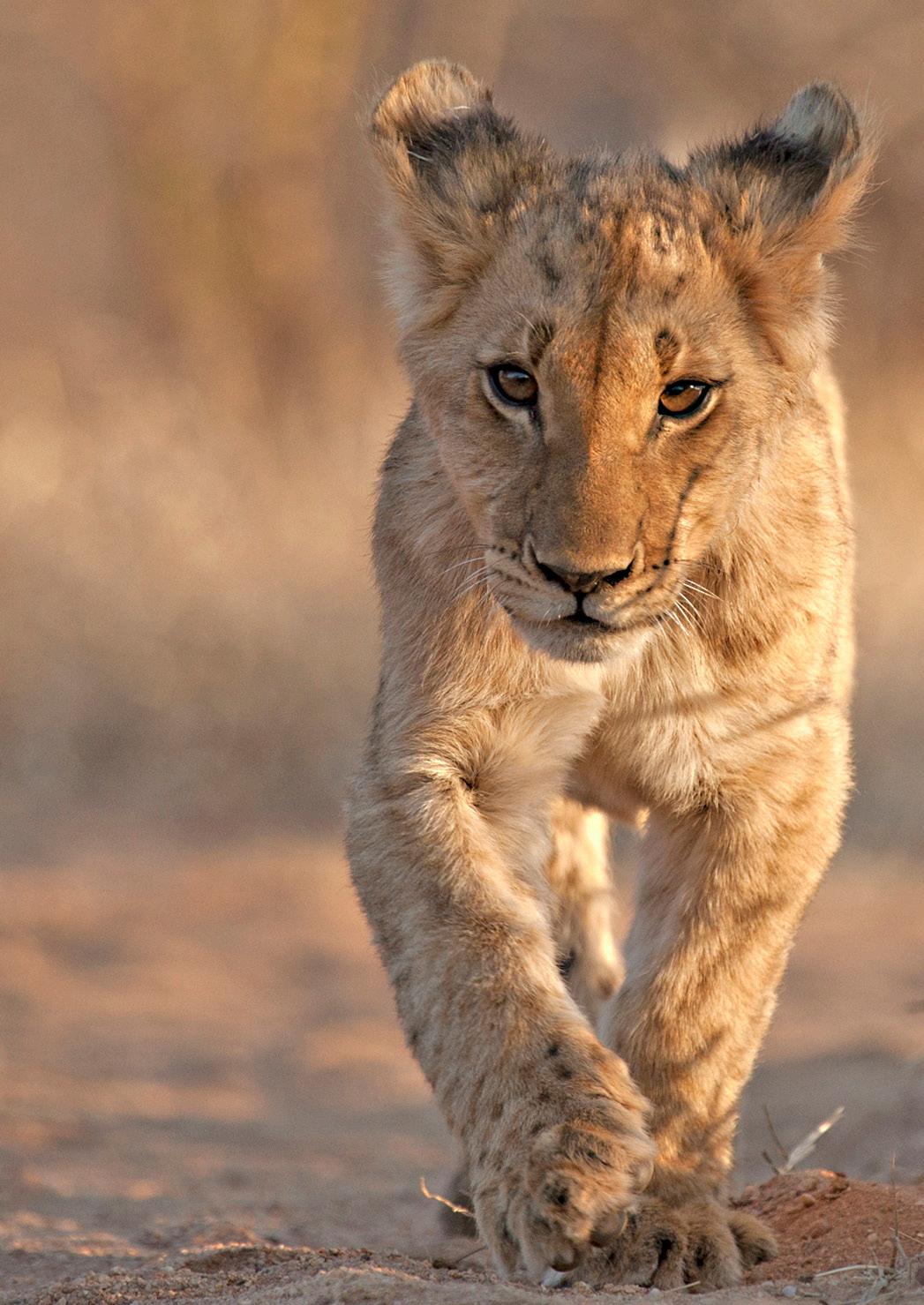 Carina Hibbitt Legacy Officer
Carina Hibbitt Legacy Officer
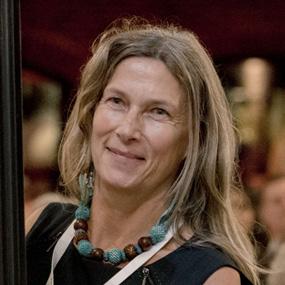
*I won’t be able to provide legal advice, you’ll need a solicitor for that.

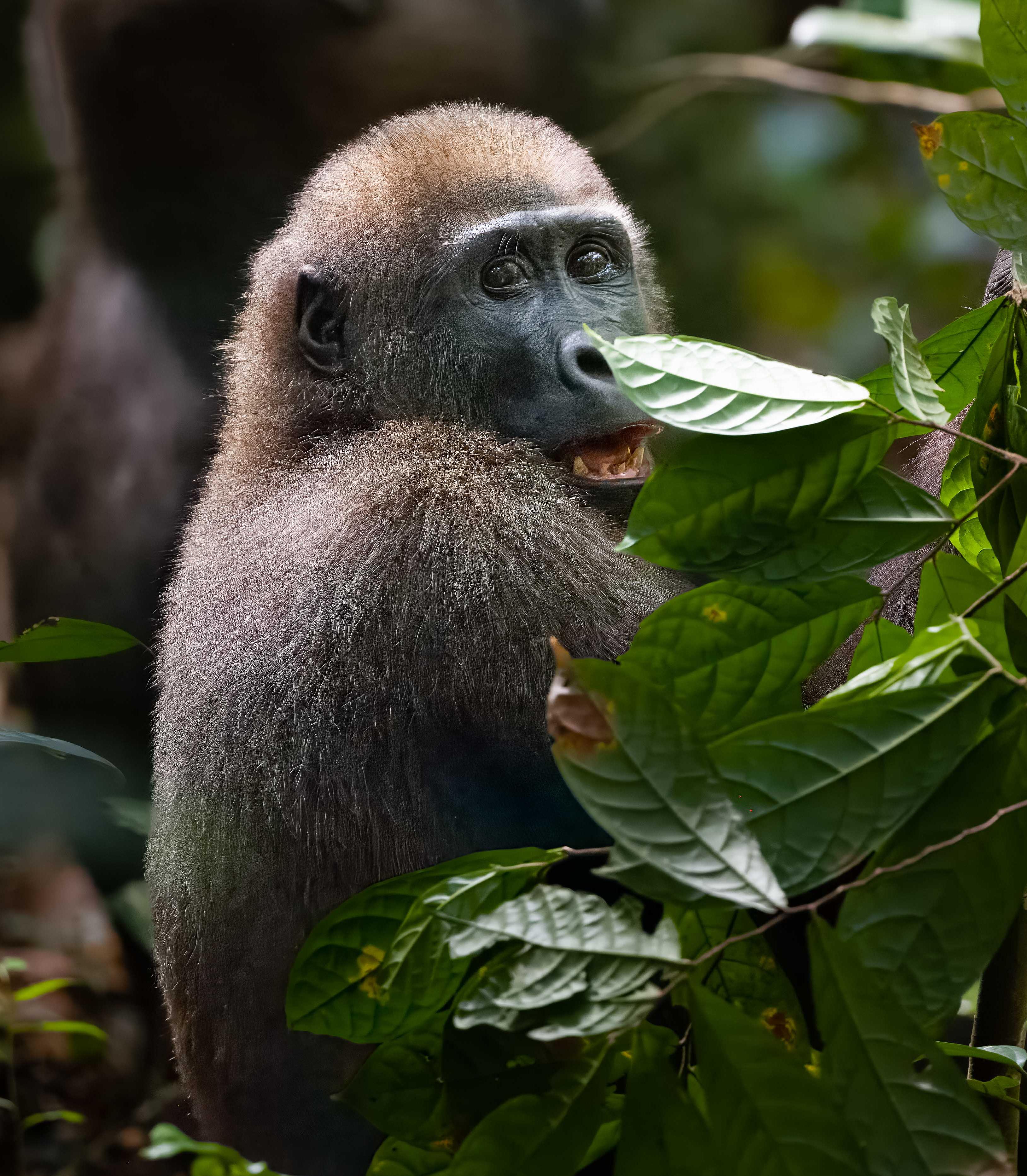
Our Conservation team reflects on four decades of conservation and how figurehead species can be key ambassadors, to represent their habitats.
Knowing how you share our love of nature, you’re no doubt aware we’re in the midst of a ‘biodiversity crisis’. The variety of living organisms has declined in recent decades, with global wildlife populations shrinking by a staggering 69% since 1970. Wildlife conservation is more important than ever before and every individual wild animal matters!

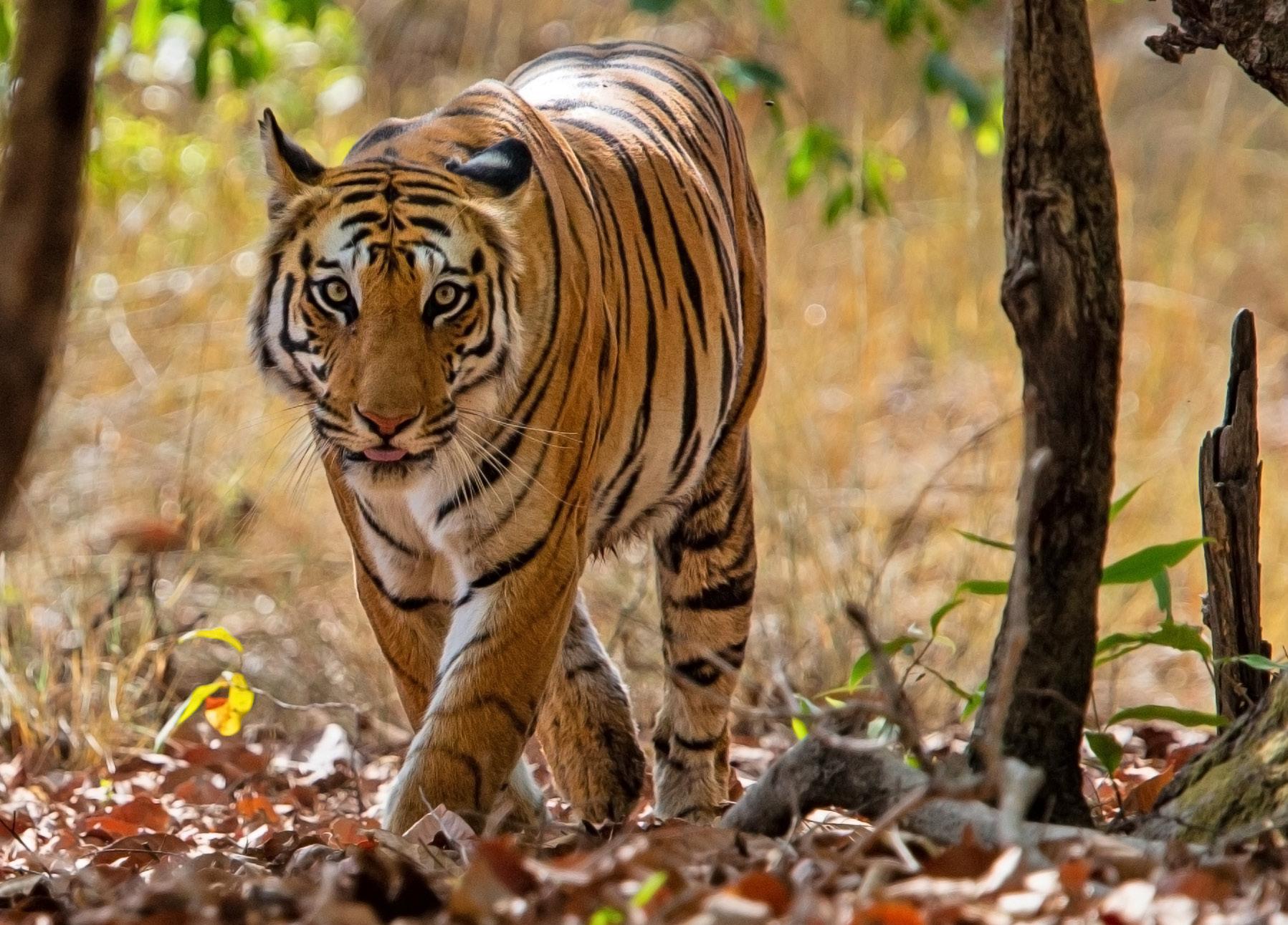
Thanks to Born Free, there is genuine hope. Our story began in 1984, and –with your fantastic support – we’ve been working tirelessly to help ensure wild animals are protected from persecution and can freely live out their lives according to their needs. With a concerted effort, we strive for a world where wild animals can safely remain in the wild, where they belong.
Over the years, Born Free has focused on large charismatic species – lions, tigers, wolves, elephants, great apes, giraffe and more. These largebodied, wide-ranging species are often considered ‘umbrella species’ – by ensuring they have sufficient resources to thrive, we indirectly benefit a community of countless other species in a shared habitat. Every species has a role to play in the ecosystem, so we try to recognise the importance of each.
This recognition is crucial, not just for wildlife itself, but also for us. The biodiversity and climate crises are interconnected in terms of causes and solutions. Nature plays a key role in
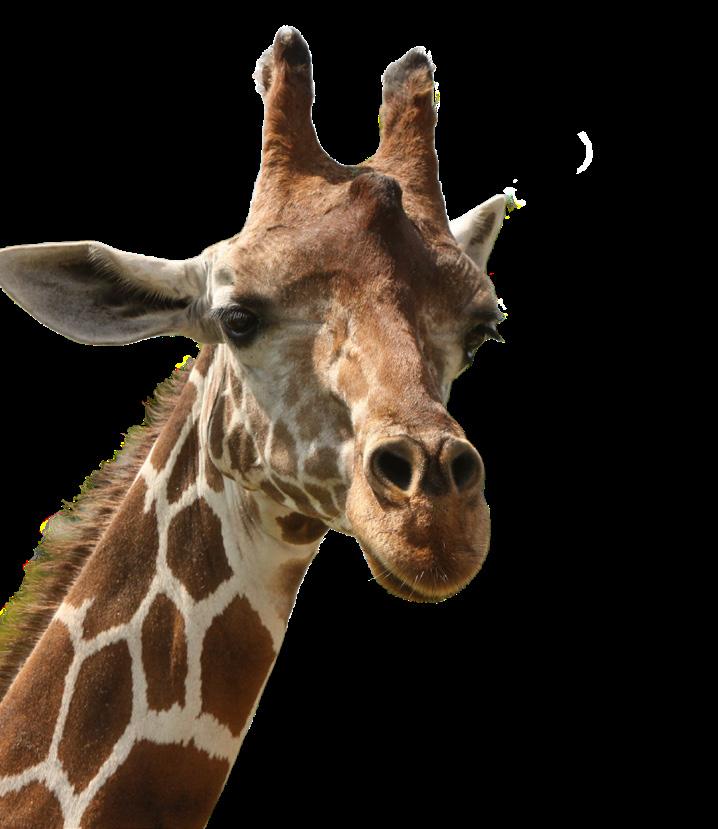

our fight against global warming and is our biggest ally in confronting the greatest challenge in human history. With your support, we must do everything we can to incorporate nature protection and restoration into policies targeted at halting and reversing climate trends. And we must step up wildlife conservation efforts.
As well as the individual animal, Born Free’s 40-year history is built on compassion and respect for individual people in the conservation story (see page 30). From local people and communities living in wildlife habitats, to our dedicated and skilled Born Free teams and partners working in the field, to our donors and supporters throughout the world, our work is respectful of and dependent on people.
“Communities living alongside wildlife in Kenya, Cameroon, India, Uganda and across the globe, may experience the threat of an elephant or a chimpanzee destroying crops, or a lion or tiger killing livestock,” explains Born Free’s Head of Conservation, Dr Nikki Tagg. “Despite this, the tolerance and compassion they can demonstrate towards potentially dangerous
We need a hero!
Flagship or ‘hero’ species such as giraffe, gorillas and tigers, transform conservation. Well-known and widely loved, they fly the flag for their ecosystems, so countless other species can thrive.
animals is both astonishing and inspiring. At Born Free, we work hard at building trust with these people, mitigating ‘conflict’ wherever possible, and helping them to peacefully coexist with wildlife.”
We have been fighting for wildlife and people for the last 40 years, and we need YOU to ensure this work can continue. Please help us champion wild animals by adopting one of our wild families. Your support not only helps your adopted family, but other species in the same ecosystem, the habitat upon which they all depend, and the communities of people living alongside them. So, your adoption could help ensure a secure and safe future for all of us! We thank you for your continued care for the natural world.
WHO WILL YOU ADOPT?
Fund our vital conservation work by choosing your favourite wild family!
• Elsa’s Pride of Lions
• Elephant Family
• Gorilla Family
• Giraffe Family
• Rhino Family Includes gift pack and regular updates: bornfree.org.uk/adopt
References livingplanet.panda.org/en-GB/ bornfree.org.uk/news/lions-elephants-and-giraffes-the-role-of-hero-species/ bornfree.org.uk/news/climate-change-we-must-act-now/
Wild Life | Summer 2024
With your support, we can develop practical solutions to help local communities peacefully coexist with wild animals in Kenya.
Since Born Free’s efforts in Kenya first began in 1989, we’ve been committed to protecting wildlife and preserving natural habitats. To do this we work with local people every step of the way.
In recent decades, conservation has increasingly embraced the critical role communities play. With rising human populations, it is the people living within these systems who are best positioned to protect wildlife and sustainably manage natural resources – their knowledge is unparalleled. Local communities are key stakeholders in achieving human-wildlife coexistence.
Take Meru National Park, our spiritual home. The region around the park faces many challenges, not least people and wild animals coming into conflict. Elephants may raid crops, or lions and other carnivores – such as hyenas and leopards – attack livestock. Aggrieved communities may retaliate, contributing to declining wildlife populations.
This is why we employ Conservation Ambassadors – local people living in communities within ‘conflict hotspots’.
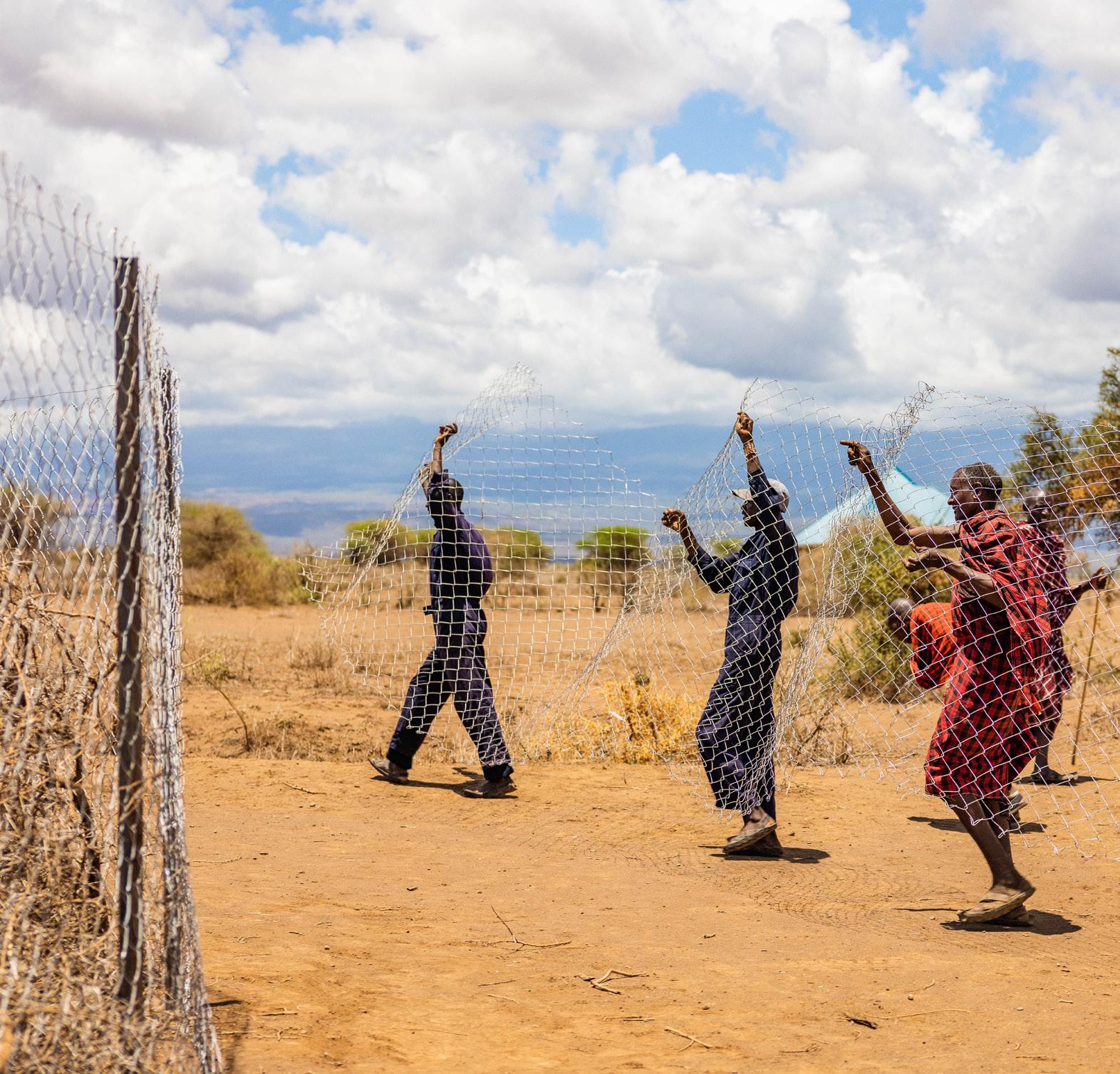
We empower them to mediate conflicts, report incidents and implement ‘mitigation measures’. Ambassadors provide a crucial liaison between communities and conservation, fostering trust and cooperation.
In Amboseli National Park, Born Free engages with Maasai pastoralists to promote conservation, with practical, cost-effective solutions. For example, by helping local people create ‘predator-proof bomas’ (see pic above and next page), conflict can be reduced and lion numbers are on the up.
Find out more Fascinated by our ground-breaking conservation solutions? Visit bornfree.org.uk to find out more.

“I used to lose my livestock to predators almost daily,” explains one beneficiary. “Since upgrading my boma, it has been a big relief to my family and me.”
But, this life-saving work is only possible because of generous donors, who share our vision to keep wildlife safe in the wild, where it belongs.
Ivy Malemba Communications Manager, Kenya ivy@bornfree.or.ke
Meru is where Elsa the lioness was returned to the wild by George and Joy Adamsonin 1956, and where she went on to have cubs of her own. Her journey to freedom remains our inspiration, and her legacy lives on through our work.
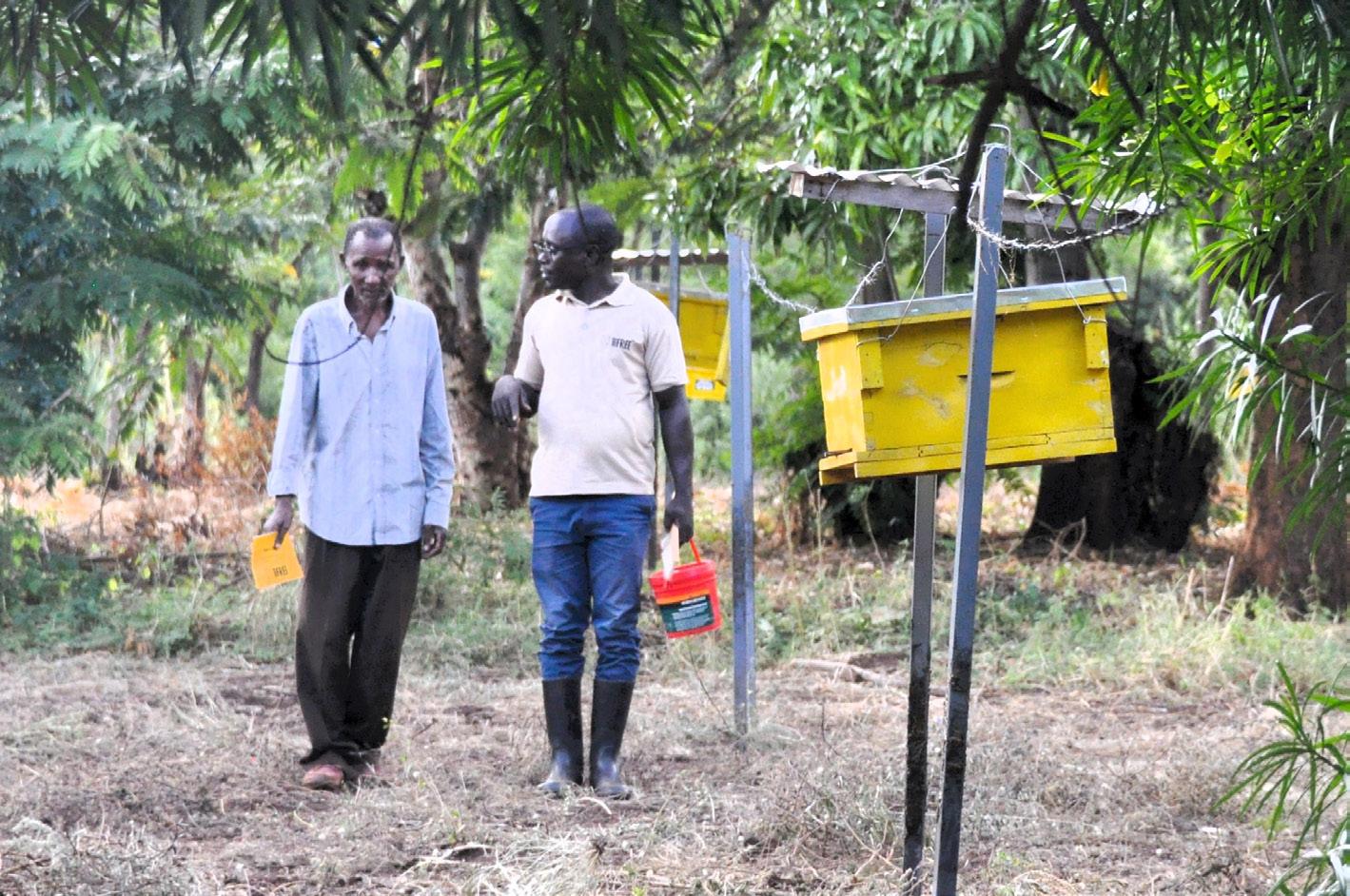
There is no one-size-fits-all solution to human-wildlife conflict. Born Free is at the forefront of implementing innovative methods to promote coexistence between people and wildlife in Kenya.
Lions
To protect lions, since 2010 we have helped stop them attacking livestock in Amboseli by reinforcing traditional enclosures (bomas) with metal posts and gates, plus chain-link fencing. By providing solar lights, energy-saving stoves and water storage tanks, we also help protect natural habitats. This effective work is now being developed in Meru. We also use flashing lights (see pic top right) and print ‘eyes’ on cattle rumps (see pic bottom right) to deter lions!
Elephants
To protect elephants, we make use of their natural aversion to bees. Since 2022, our ‘beehive fences’ (see pic top left) have been an effective solution to support subsistence farmers. Suspended on wires to enclose the farm, the beehives deter elephants from foraging on crops, while providing an income through honey.
Dr David Manoa Pride of Amboseli Manager manoa@bornfree.or.ke
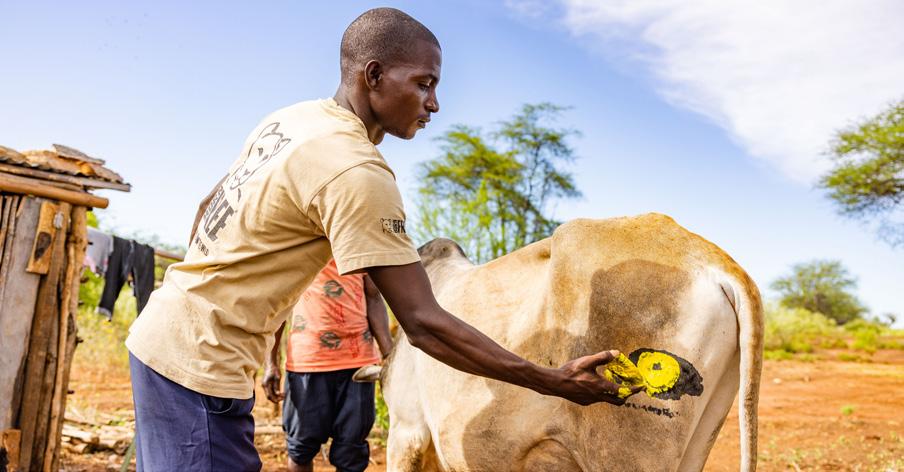
We’ve reinforced over 400 bomas, benefitting over 8,000 people and around 100,000 livestock (cattle, sheep, goats and donkeys).
We’ve donated over 800 flashing light units, 400 solar light units, 7,000 energy-saving stoves, 250 water-storage tanks.
We’ve printed ‘eyes’ on the rumps of 138 cattle, to deter lions from attacking.
Thank you!
Did you know?
We don’t just mitigate conflict in Kenya. To protect tigers in India, our innovative solutions include employing local Tiger Ambassadors, running a mobile health unit, and encouraging cattle ‘fodder feeding’ rather than forest grazing. Find out more on page 34.
…to everyone who funds our vital conversation work in Kenya, and around the world. Your support protects iconic species and their habitats, in partnership with local communities. Together, let’s reduce conflict, help people and wildlife coexist, and keep wild animals safe.
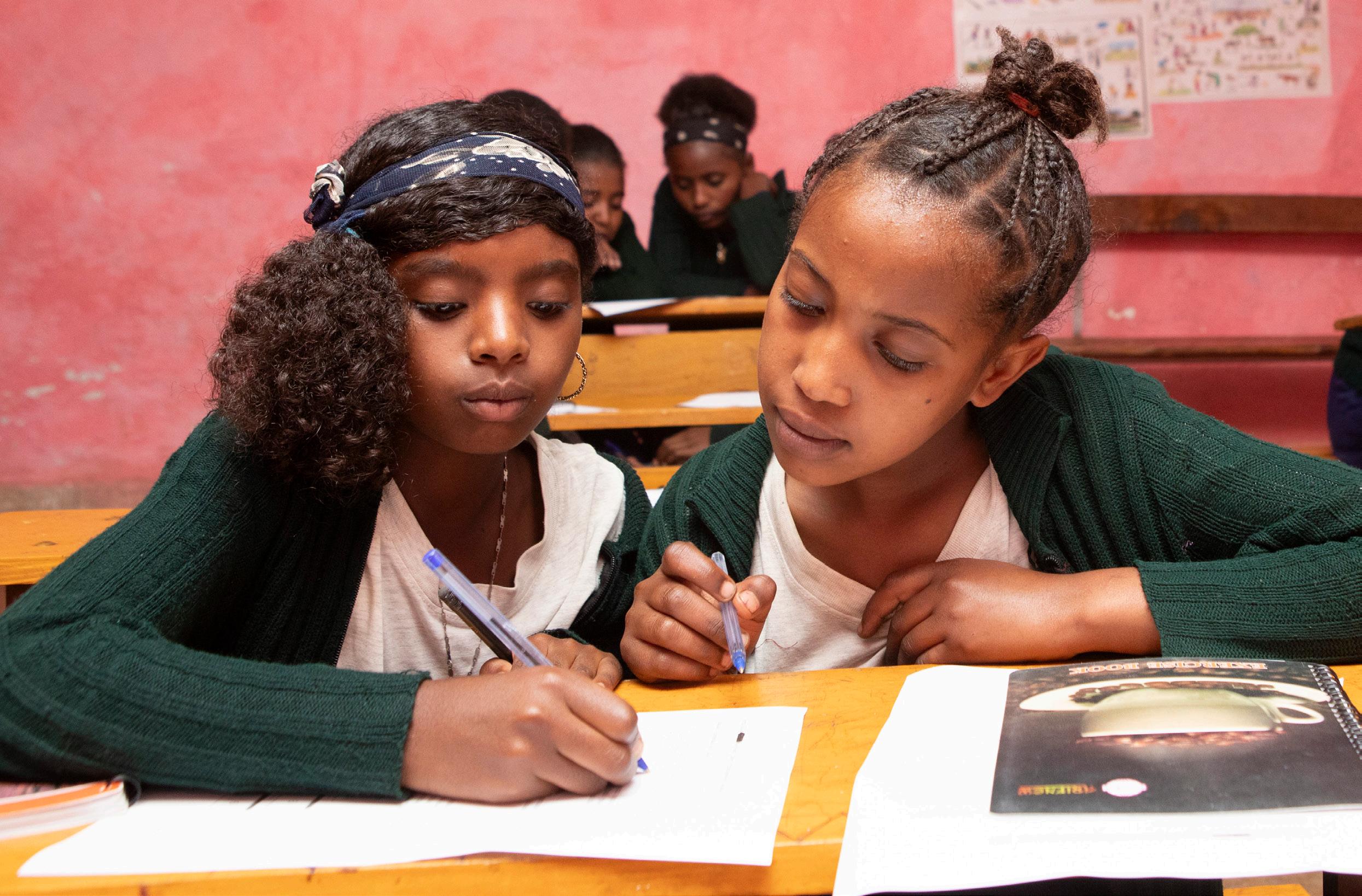
Despite being devoted to wildlife, our charity has always known why education is vital – from our very first magazine, to our latest webinar. Laura Eastwood explains more.
As an organisation, we understand how every individual matters, whether a wild animal exploited in captivity, or protected in the wild. It’s this focus on every member of a species which sets us apart.
But, this view – rooted in compassion and respect – must also extend to the human communities, who share
their environment with wildlife. This includes local people in Kenya, Ethiopia and beyond. But, wherever we live on the planet – rural or urban – we’re surrounded by and are part of nature. This is why lasting conservation and improved welfare can only be achieved by including people.
Born Free’s formal education programme dates back to the late 1990s, when we first employed devoted staff. But actually, since our inception, we’ve raised awareness to help address our impact on wildlife and drive positive change. Our launch magazine, in March 1984, lists our very first priority as ‘education, to focus people’s attention on the problems of captive wildlife’.
Over the years we developed many education initiatives, however, it wasn’t until 2017 that we established the education programme you see today. We still strive for greater understanding around the exploitative captive animal industry, for increased conservation knowledge and collective action. But, thanks to new methods and far greater reach, we can effect incomparable positive change.
Today, our education programmes aim to ‘Engage, Educate and Empower’, and cover many areas, from in-classroom teaching to community livelihood initiatives. But, all this work helps enable coexistence between people and wildlife. In this, our 40th year, let’s hear from my colleagues around the world:


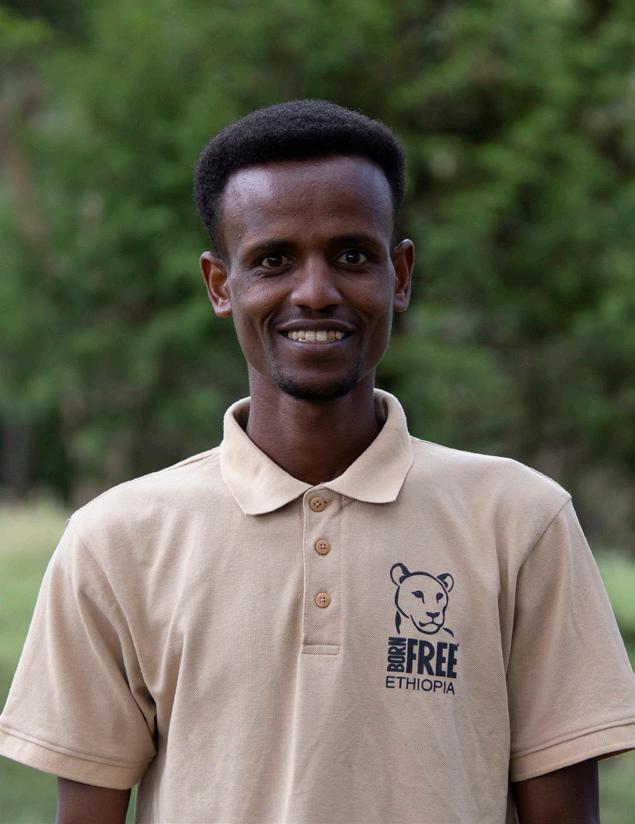
“Working with people who live alongside wildlife has made me put myself in their shoes. We want to make their lives better, while maintaining their tolerance to coexist.”
Phoebe Odhiang Education Manager Kenya
On 7 March 2024, over 23,000 pupils from 380 schools across the UK and beyond attended our webinar, with special guest Sir Michael Morpurgo. Linking with his popular children’s classic, The Butterfly Lion, our event considered the rescue and care of captive lions in need.

“Because of education, individuals develop a deeper understanding of environmental issues and have the skills to make informed and responsible decisions.”Sidney Clay Education Officer South Africa
In the UK, our team is working to deliver Great Debate workshops directly into secondary schools for the first time, with hugely positive feedback: ‘Born Free opened our eyes to what’s happening in the world around us’.
The more we engage with communities and young people, the brighter the future looks. From our amazing young Ambassadors, to the children we meet around the world, their interest and passion is testament to the positive impact of helping people connect with nature.
Laura Eastwood Head of Education laura@bornfree.org.uk“Born Free helps me to grow myself, my family, my community and my country.”
Ayano Urgecha Education & Outreach Officer
Ethiopia
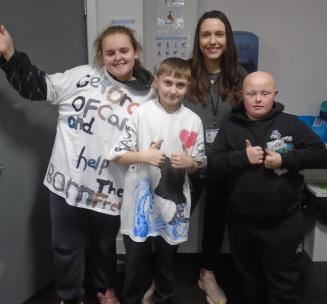
To discover our full range of education work with schools and communities visit bornfree.org.uk/uk-education or bornfree.org.uk/internationaleducation

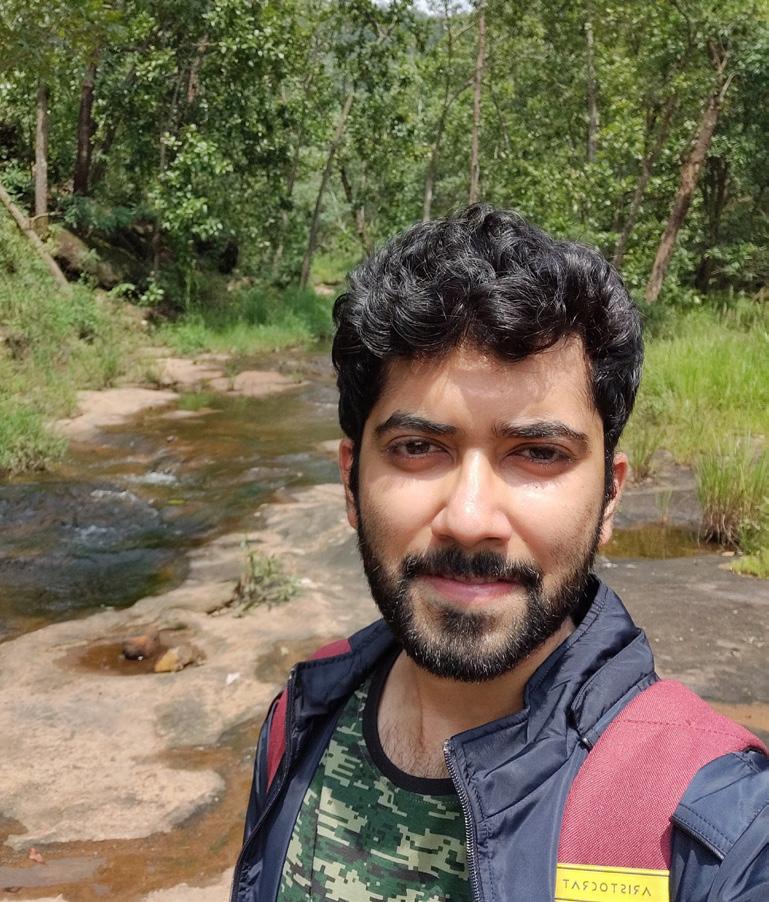
trained to manage human-wildlife conflict issues, more than 350 hectares of forest have been restored and over 750 square miles of habitat added.
Can you remember the first toy you or your child played with? The first books you read as a child? For many, these no doubt revolved around animals, as did mine.
As children, we seem to have an innate sense of love and fascination with the natural world but, sadly, many of us lose this connection as we grow up. For others, however, this sense of relationship and wish to protect nature manifests very strongly, becoming their life’s mission.
I coordinate the Satpuda Landscape Tiger Partnership, a group of dedicated individuals and grassroot organisations. We collaboratively conserve the forests and wildlife of Central India, one of the world’s most important tiger landscapes. In following my dream, I am proud to be part of this coalition, founded by Born Free in 2004, as it reaches an incredible milestone. In 2024, we celebrate two decades of impactful conservation, thanks to the support of people like you.
Using the tiger as a potent symbol of biodiversity, the partner teams inspire people from local communities, living around tiger reserves, to learn more about wildlife and do their bit for conservation. Supporting a range of age groups and cultures, their work has benefitted more than 450,000 students through nature education programmes and shared ‘conflict prevention methods’ with nearly half a million community members. In addition, youth volunteers and forest guards have been
The impact on India’s tigers has been positive. Latest estimates indicate the population has more than doubled since 2004 and our Partnership is so proud to be part of this journey. Tigers play a critical role within their ecosystem and their conservation indirectly protects countless other species – from wild dogs to sloth bears – and enhances forests’ carbon-storing properties.
It’s no surprise my love for tigers grows stronger each day, as does my respect for our field teams and frontline forest staff – working in challenging conditions to protect the future of wildlife and, in turn, all life on earth.
Tigers in numbers
Global: 4,485
India: 3,682
India is now home to 75% of all wild tigers and numbers have more than doubled since our work began here in 2004.
Thanks to everyone who donated to our Green Match Fund and raised over £47,000 for tiger conservation.
Mall Galleries, London SW1Y 5AS
Major solo exhibition and exclusive private view by Gary Hodges – the UK’s best-selling, most collectable pencil artist.
Private View:
Tuesday 1st October 2024, 5.30-9pm
Join Gary and Born Free for an exclusive, star-studded evening, including drinks reception, canapés, performance by soprano Katie Marshall, plus live auction.
Free Exhibition:
Wednesday 2nd – Saturday 5th October 2024, 10am-6pm
Find out more and book your ticket: drawnfromtheheart.co.uk

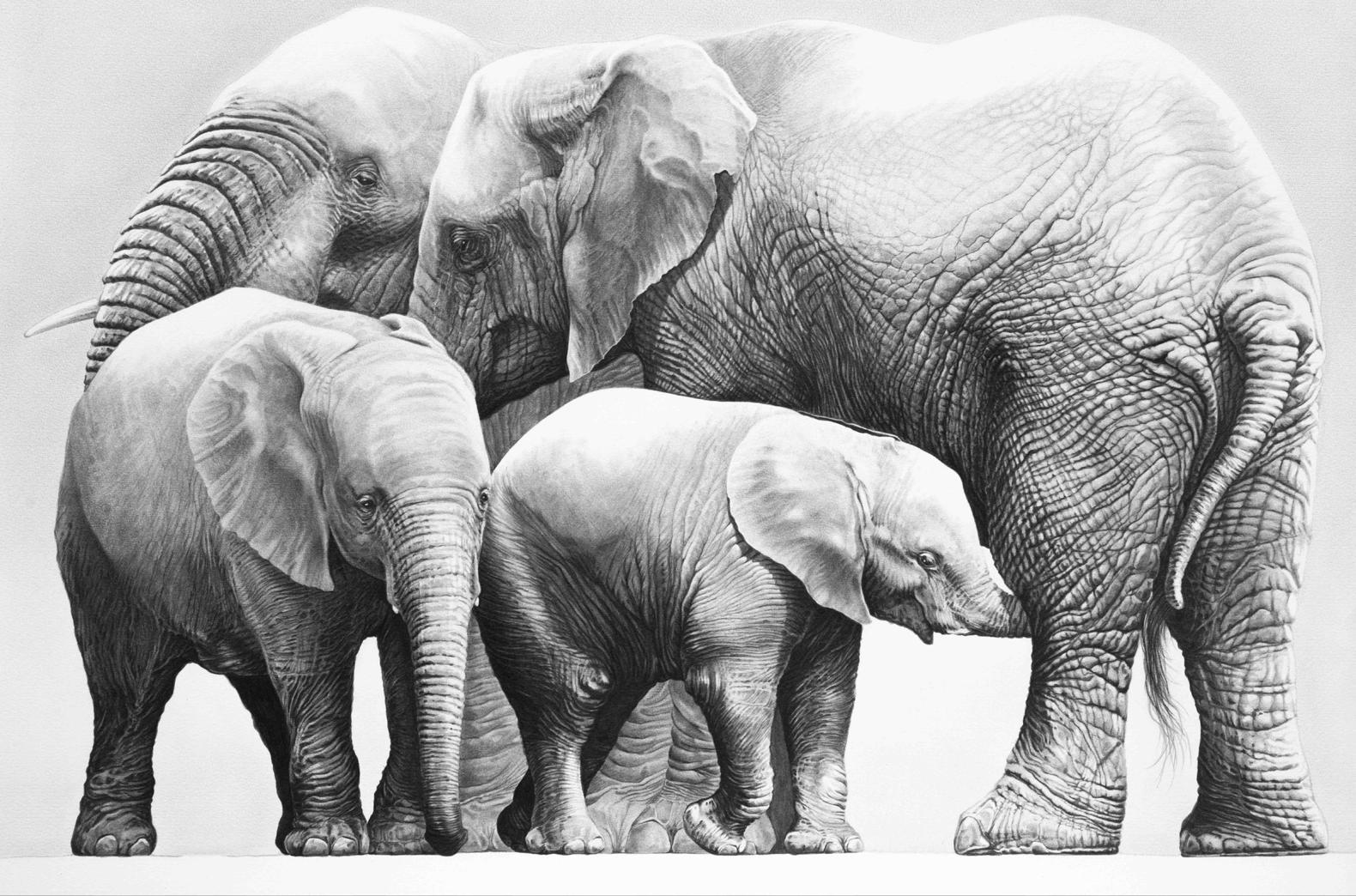

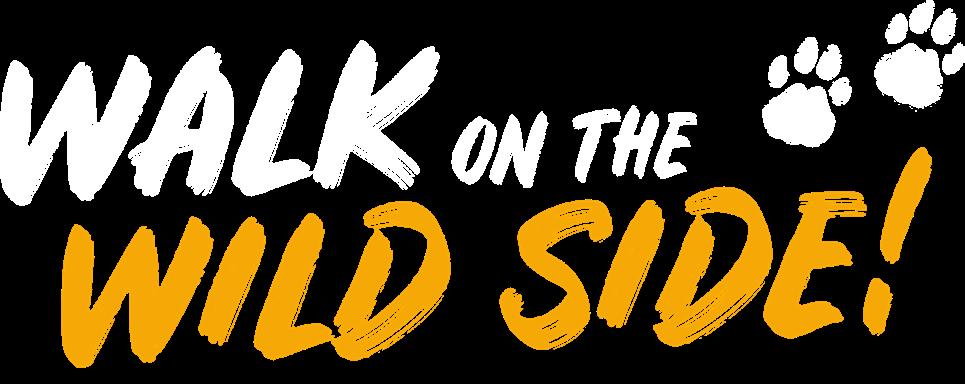
Saturday 10th August 2024 OR anytime in August is grrrrrrreat!
As someone who loves lions, can you walk (or run!) one step for each of the 23,000 lions left in the wild?
Together, let’s raise
•
•
• Fight to end captive exploitation
Please step up for lions, lace up your trainers and take our 23,000-step challenge!
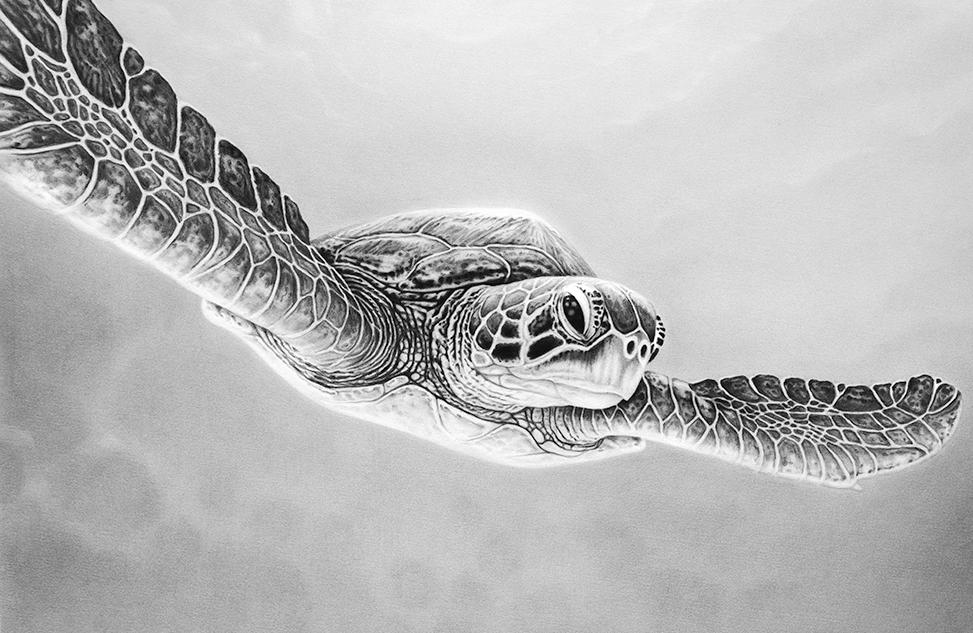
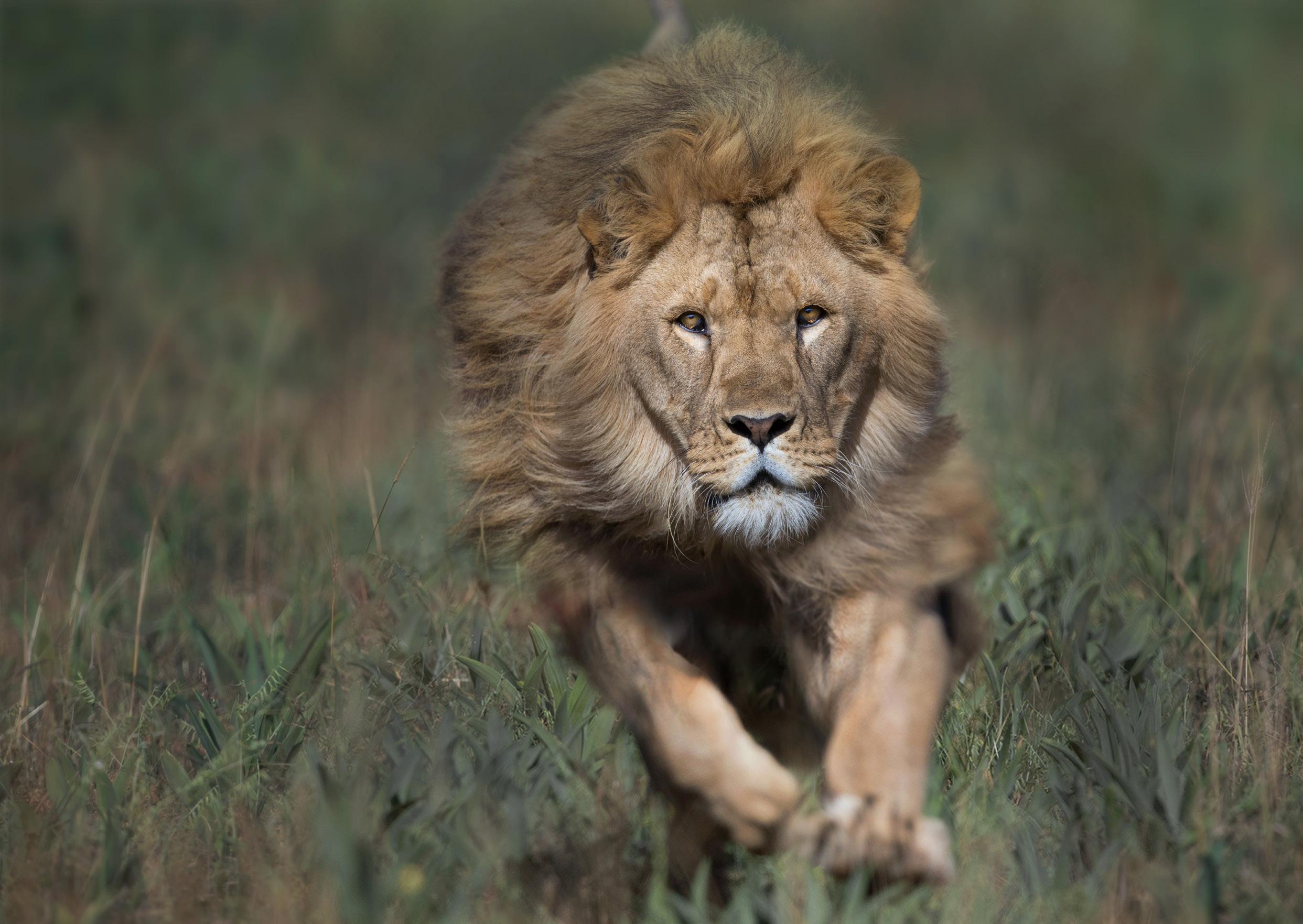

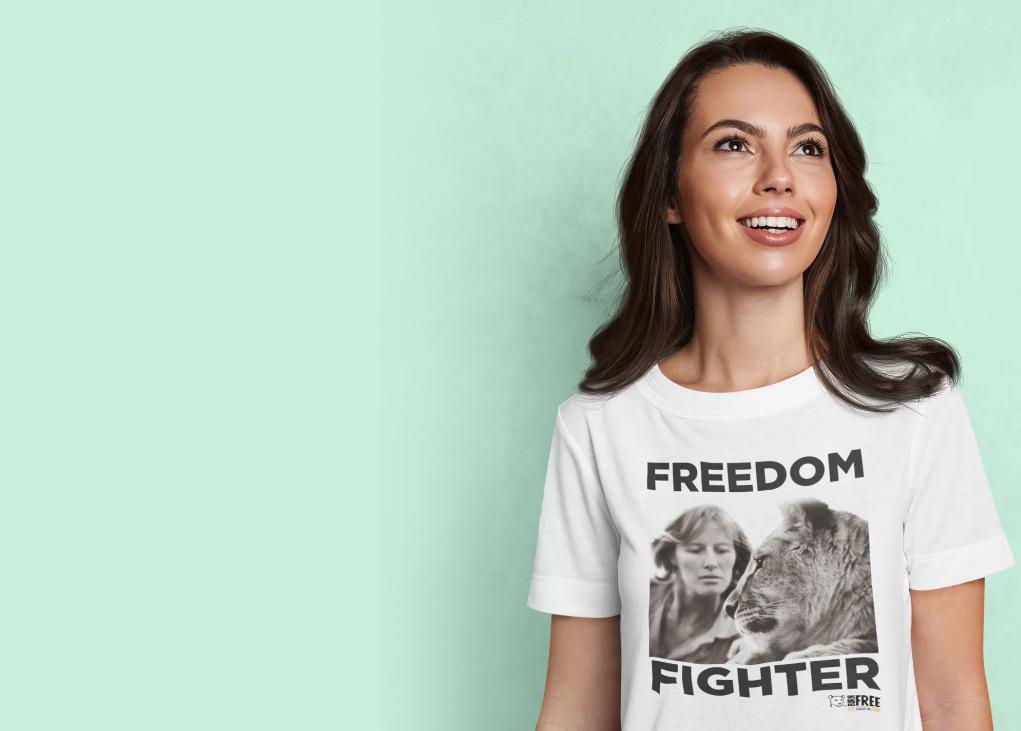
Celebrate Born Free’s 40th, with summer gifts for animal-lovers of every age. Support wildlife as you shop!
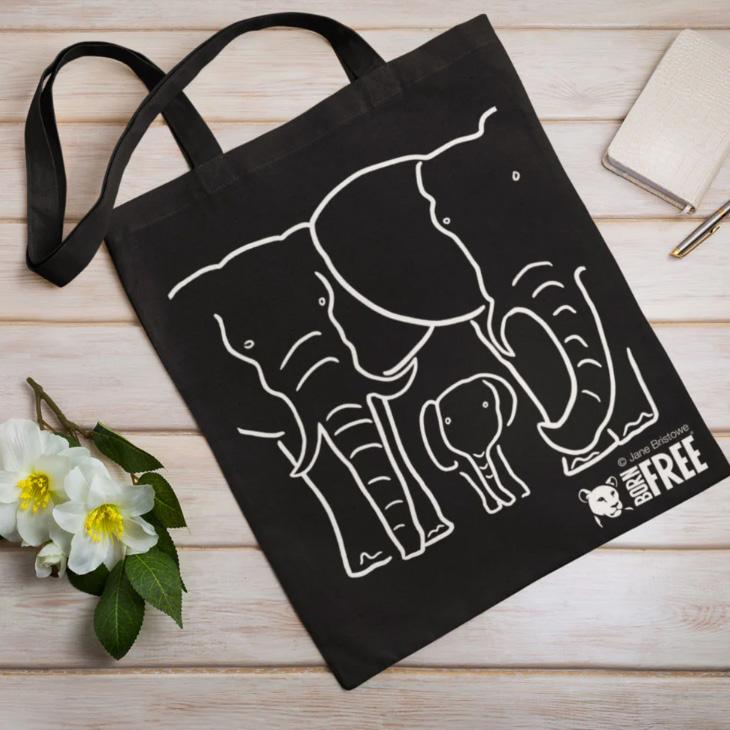
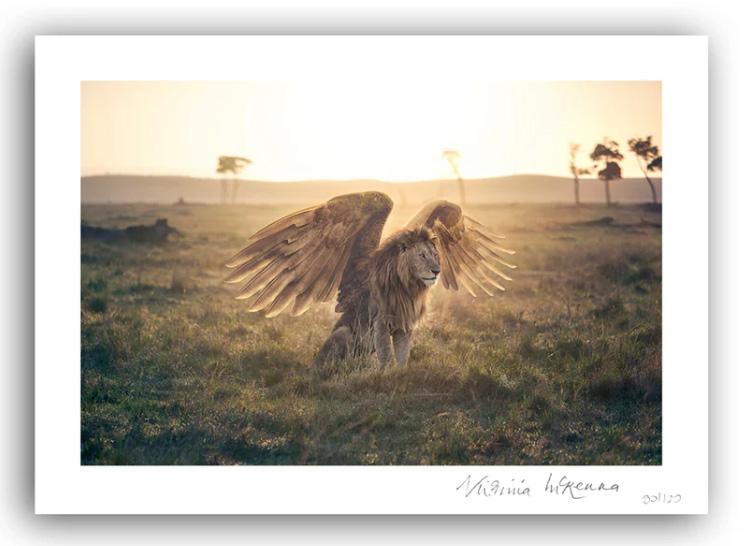
Sustainable, printed to order


purchase helps wild animals in need.
